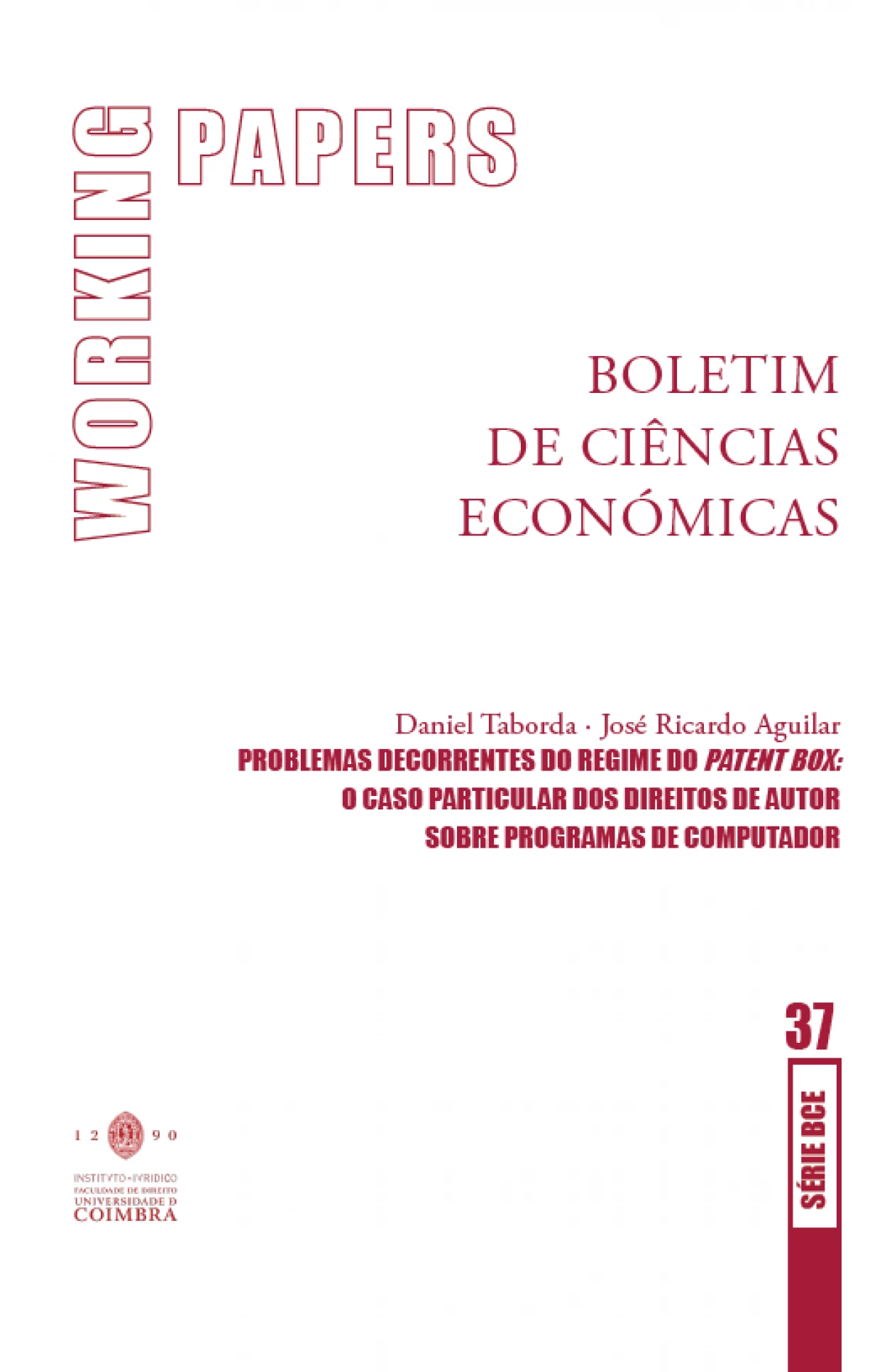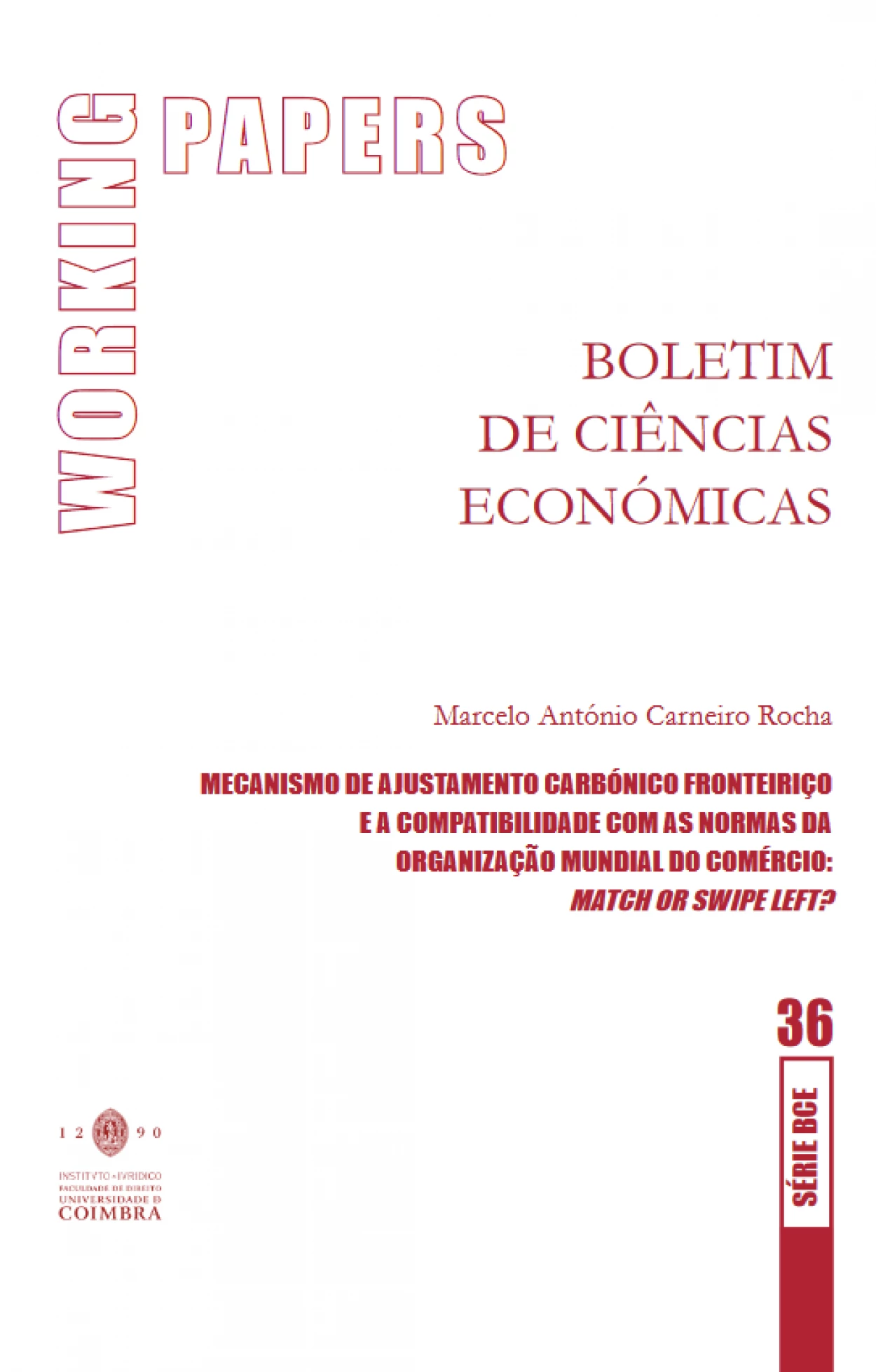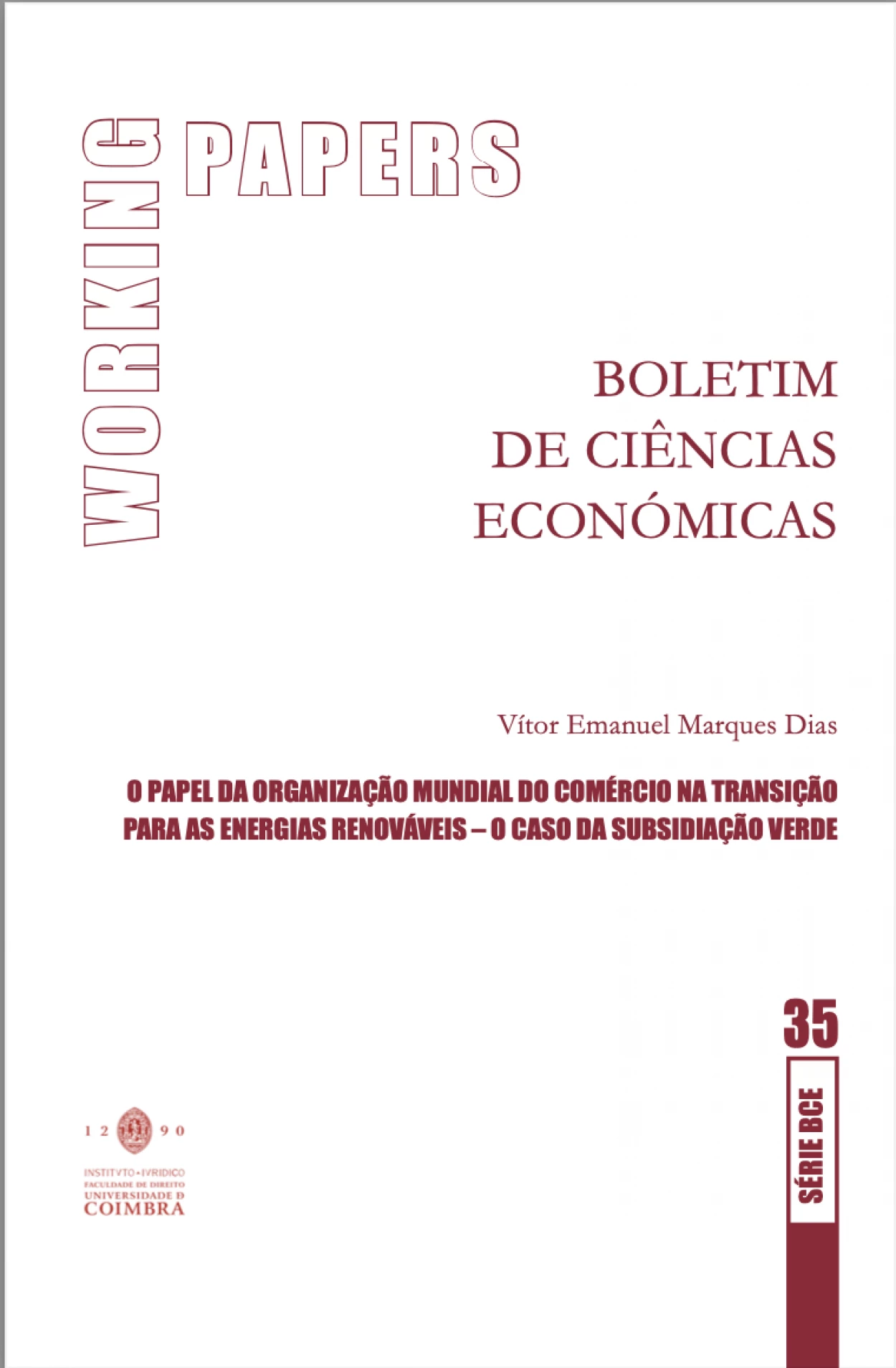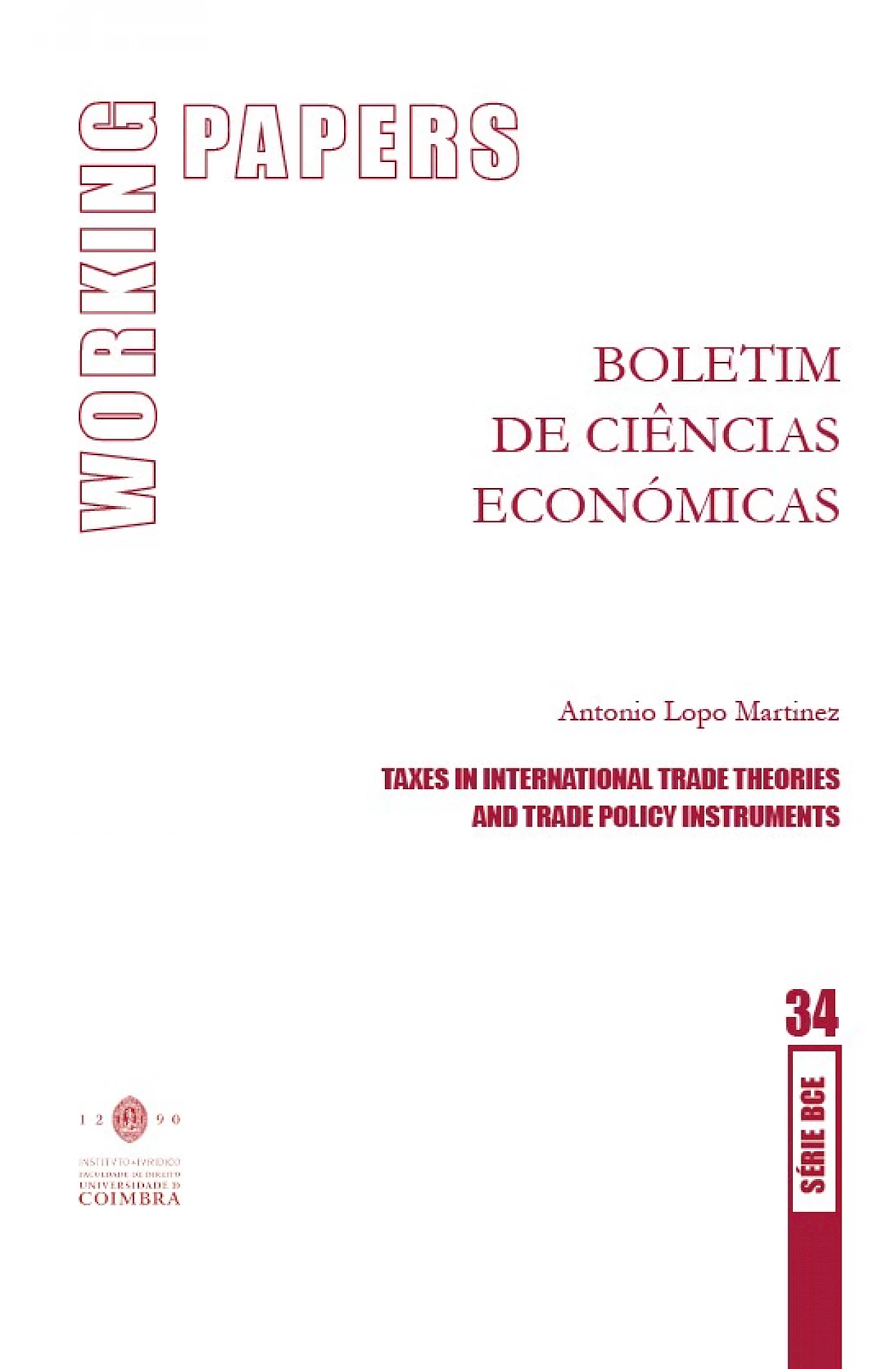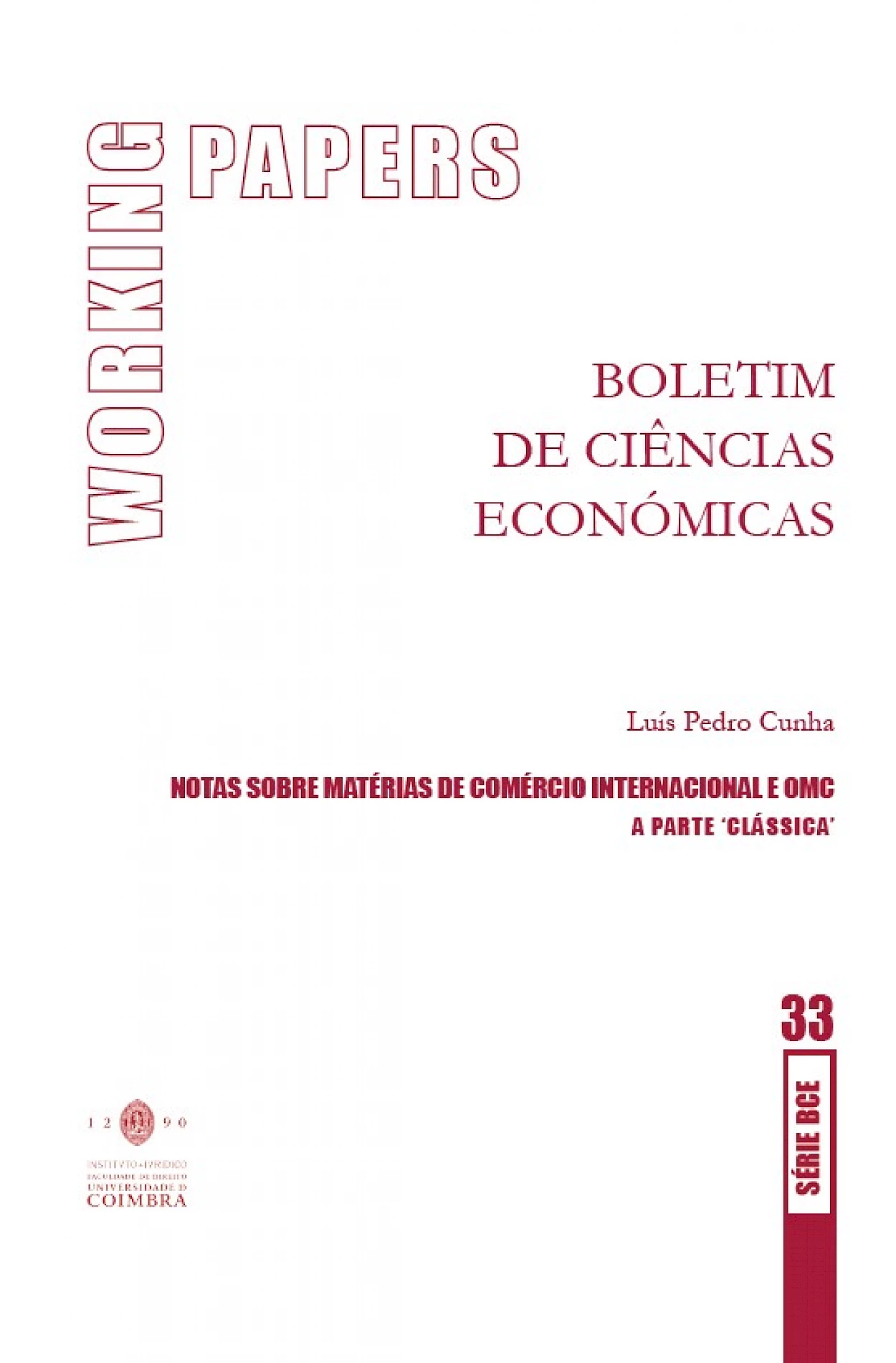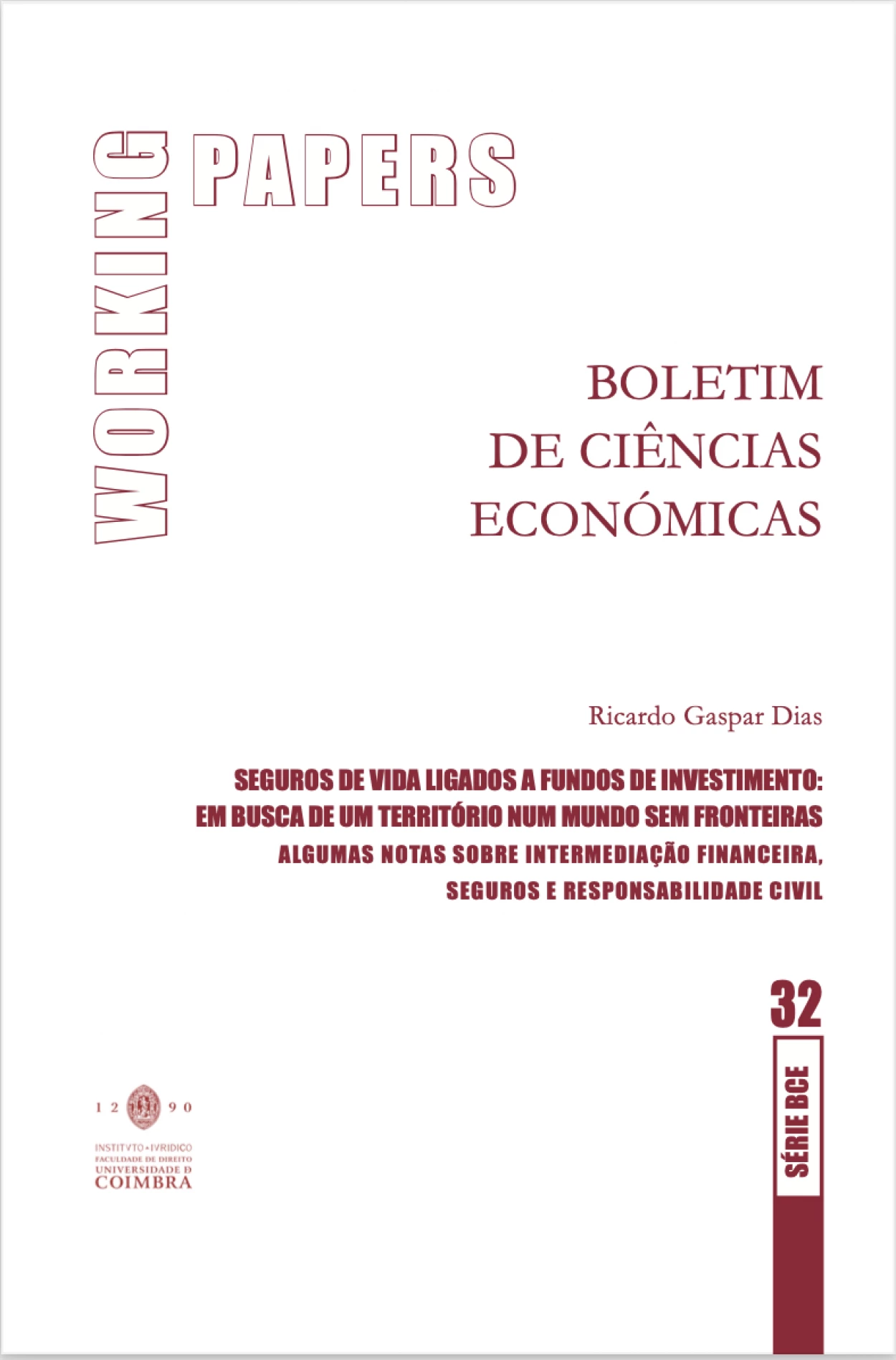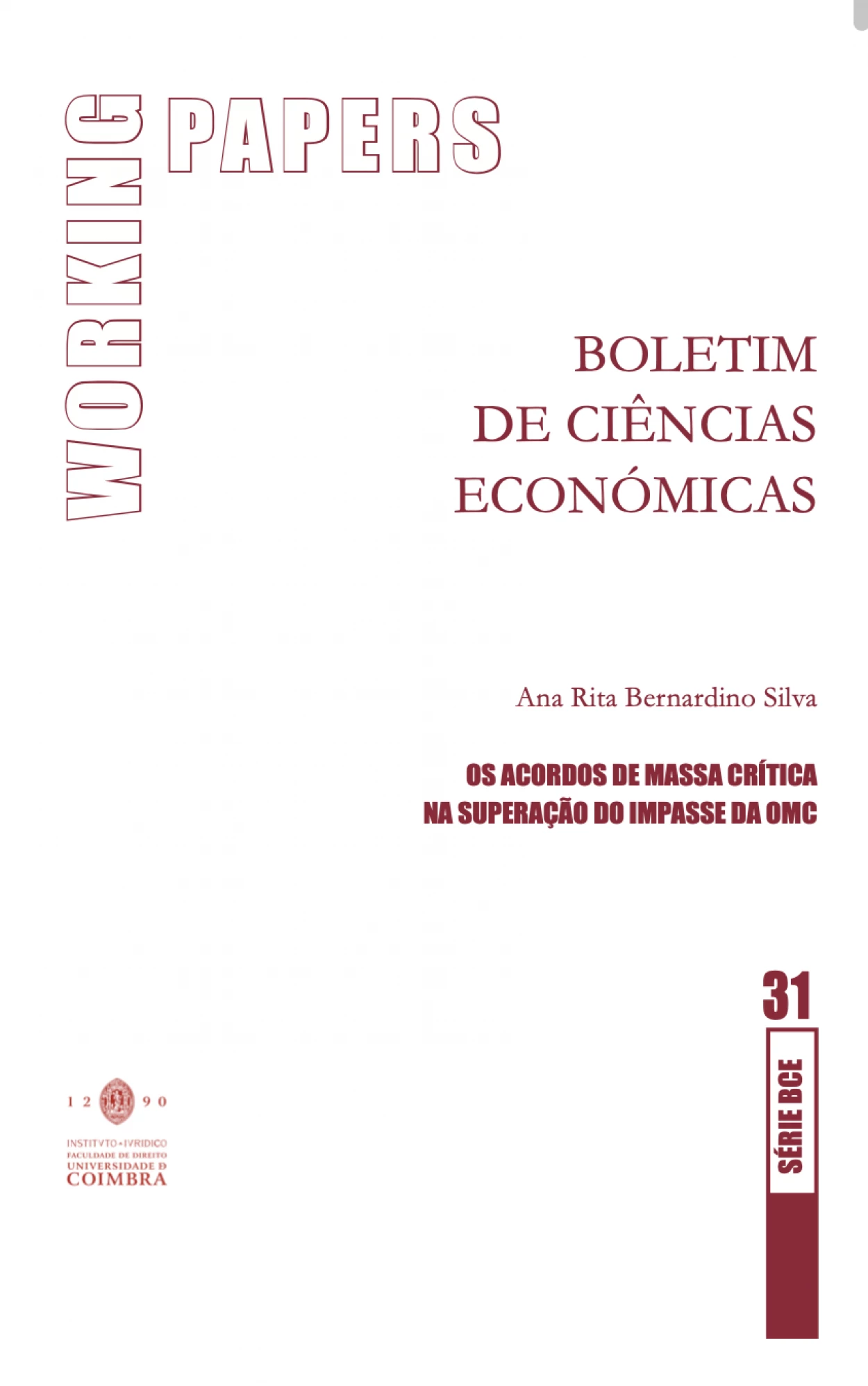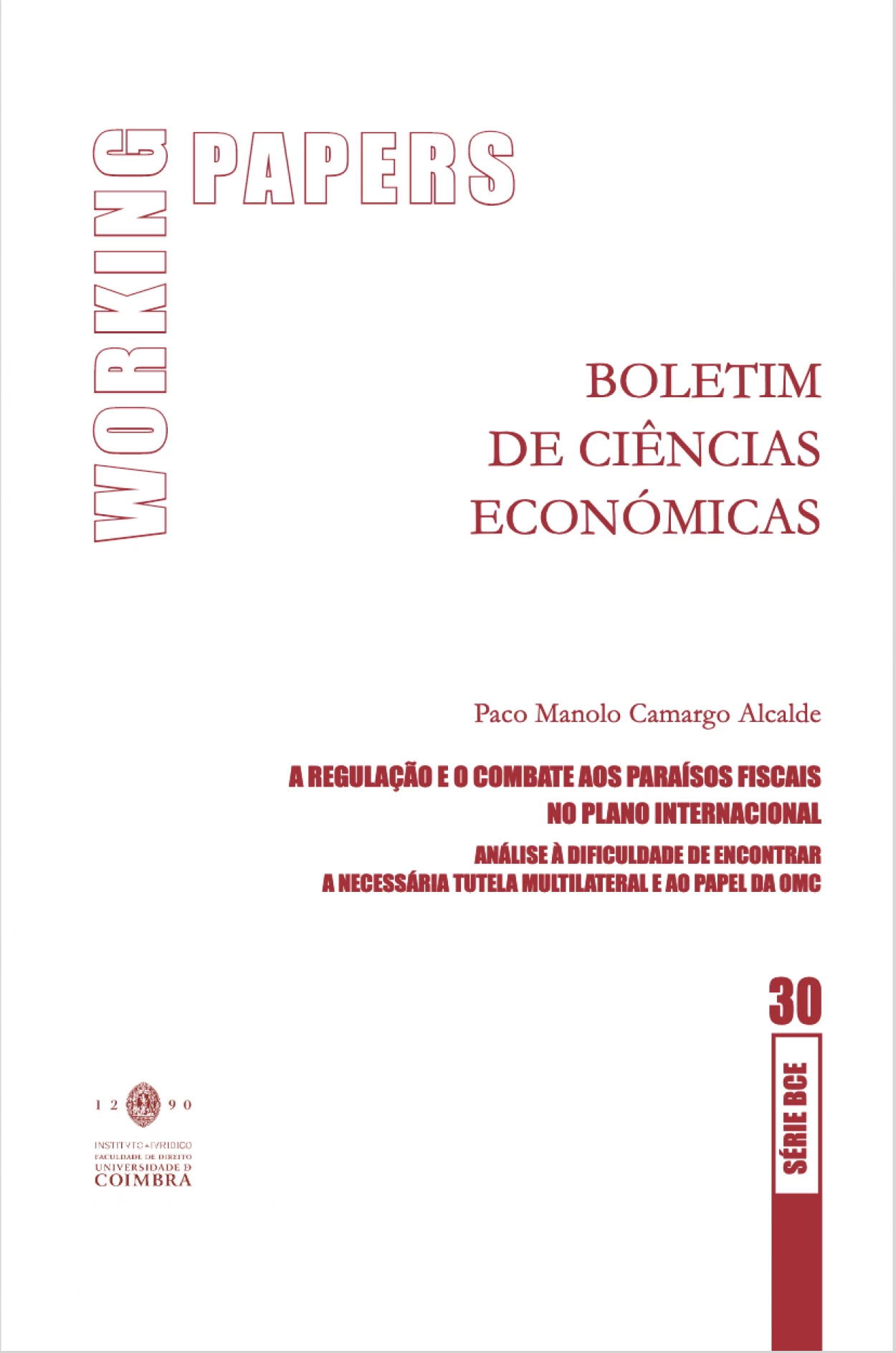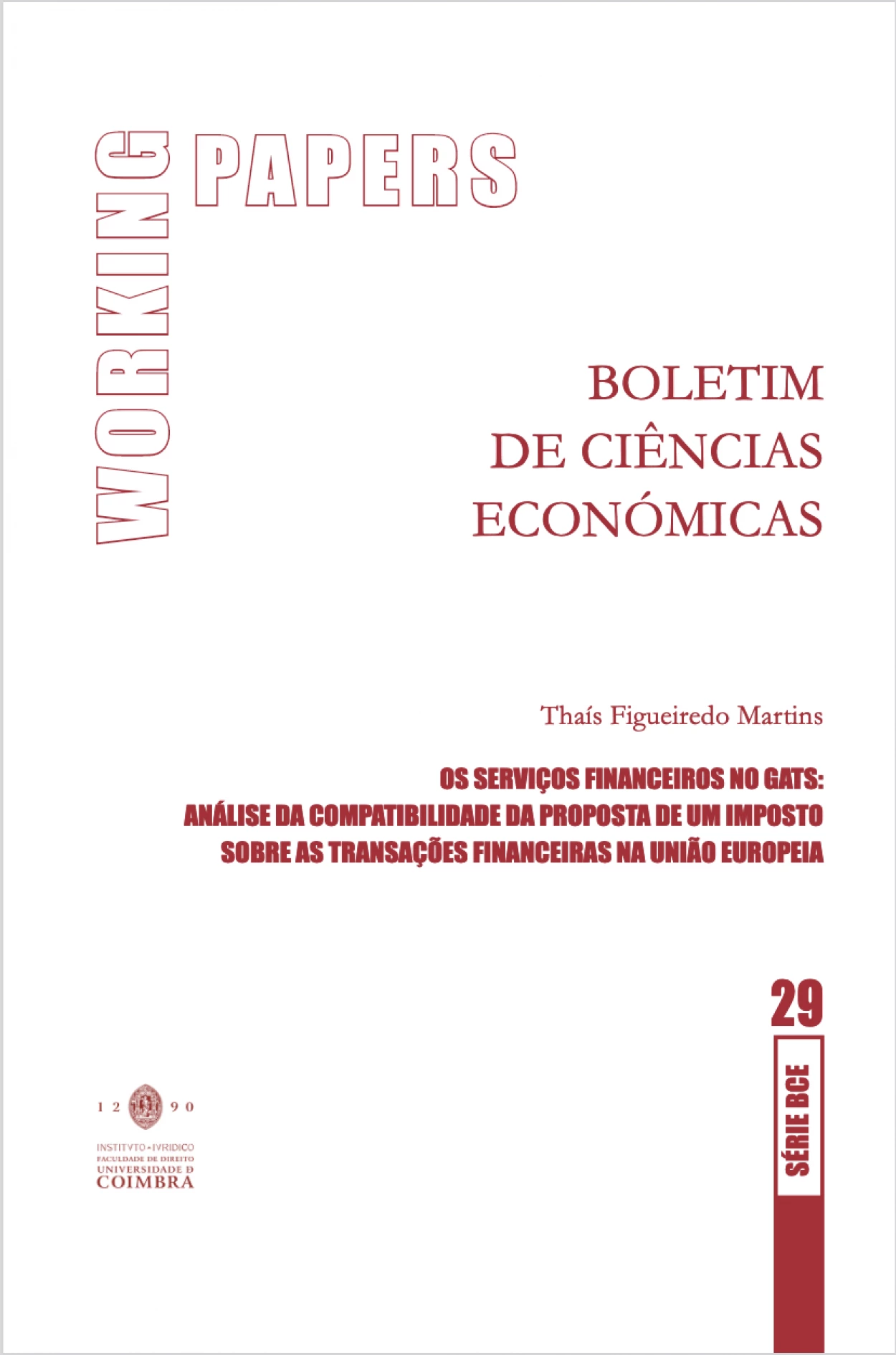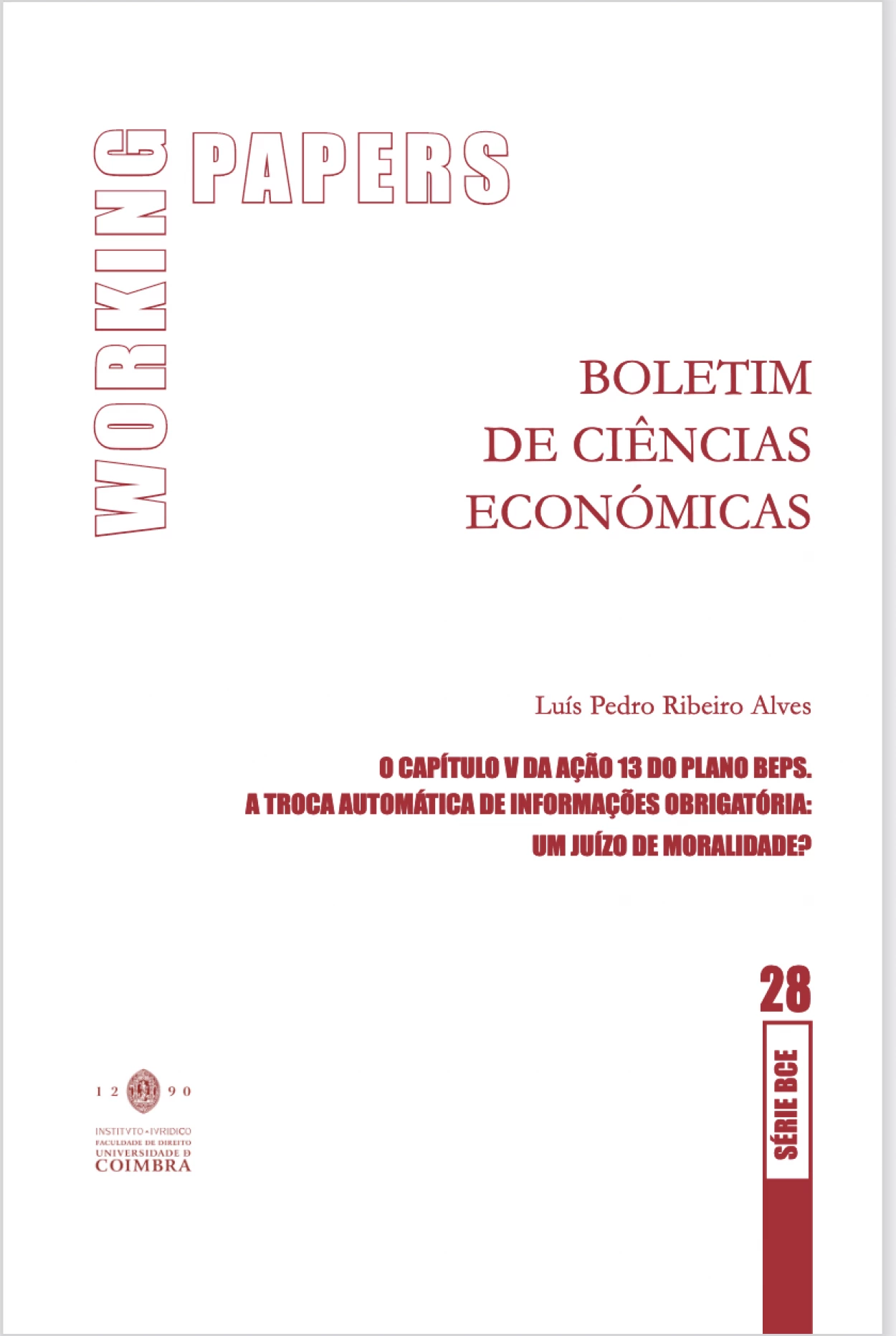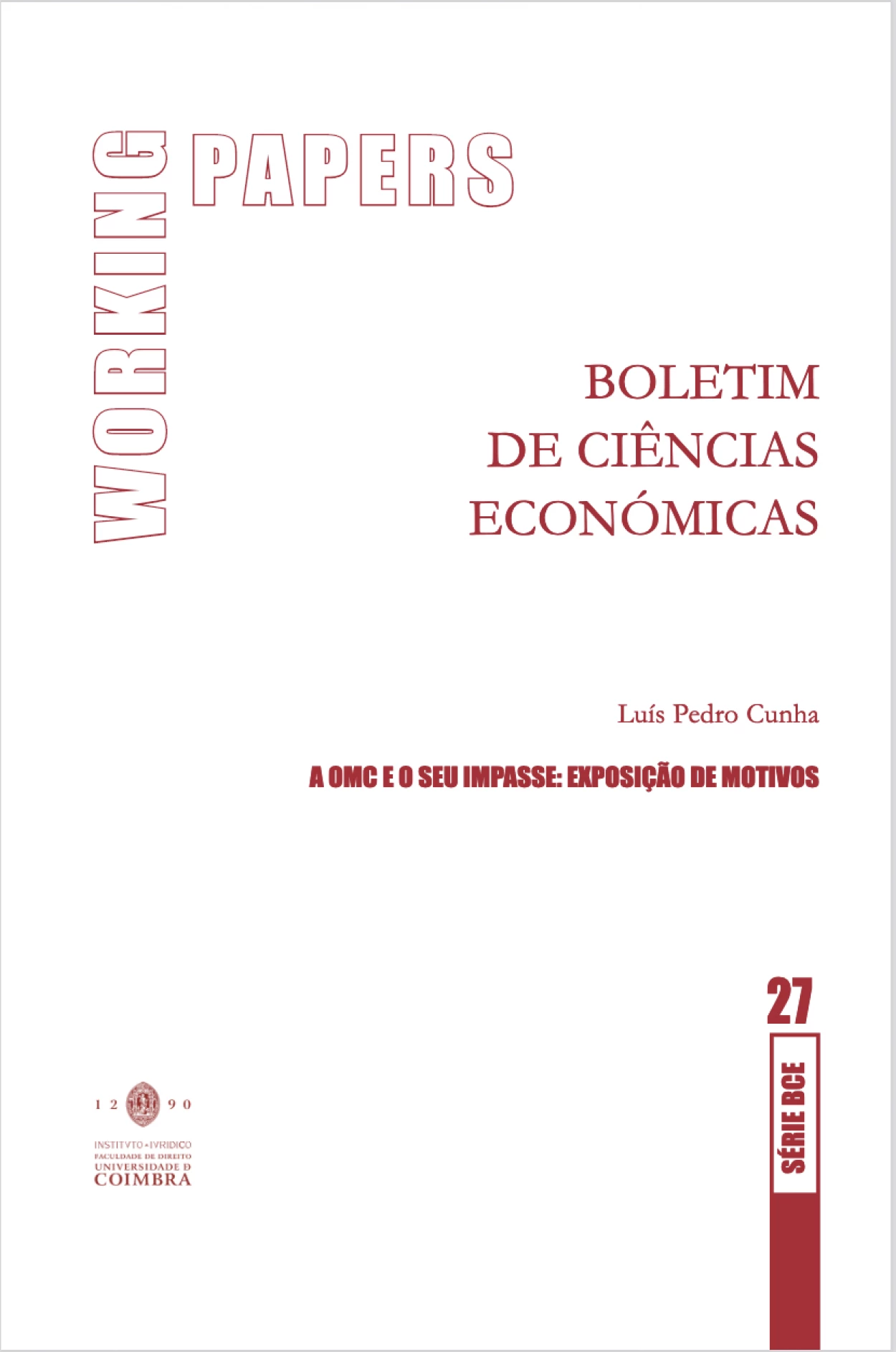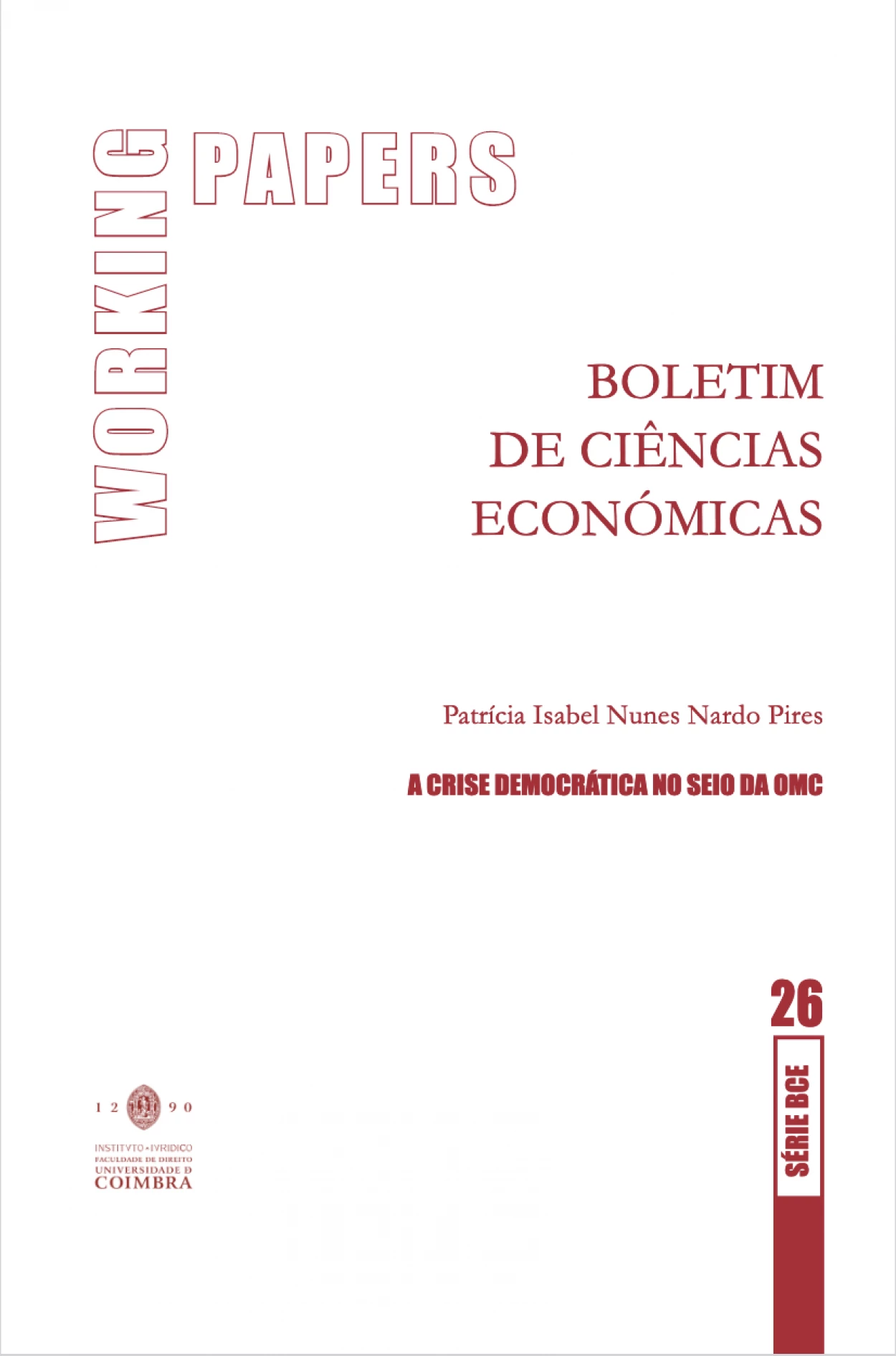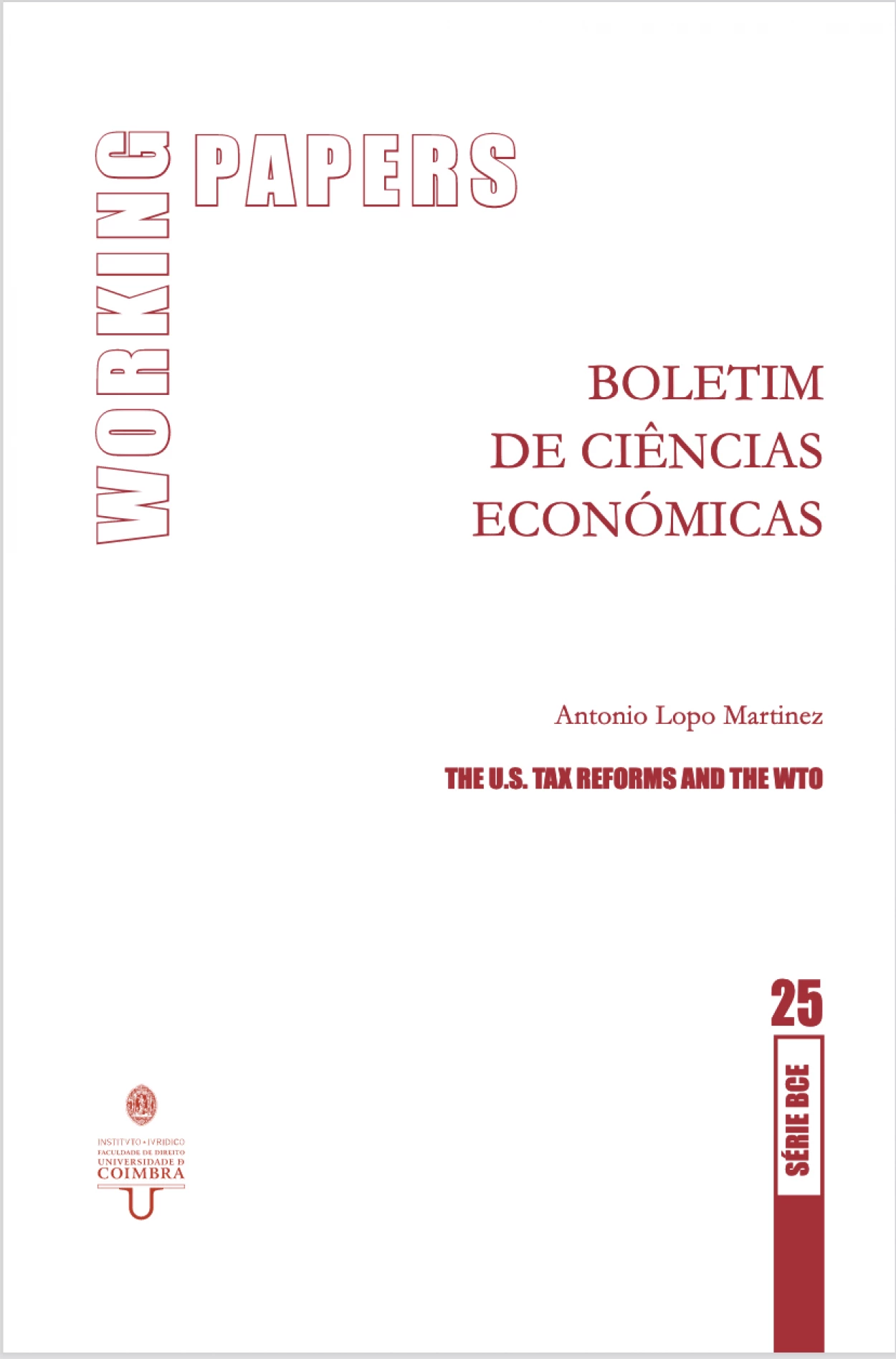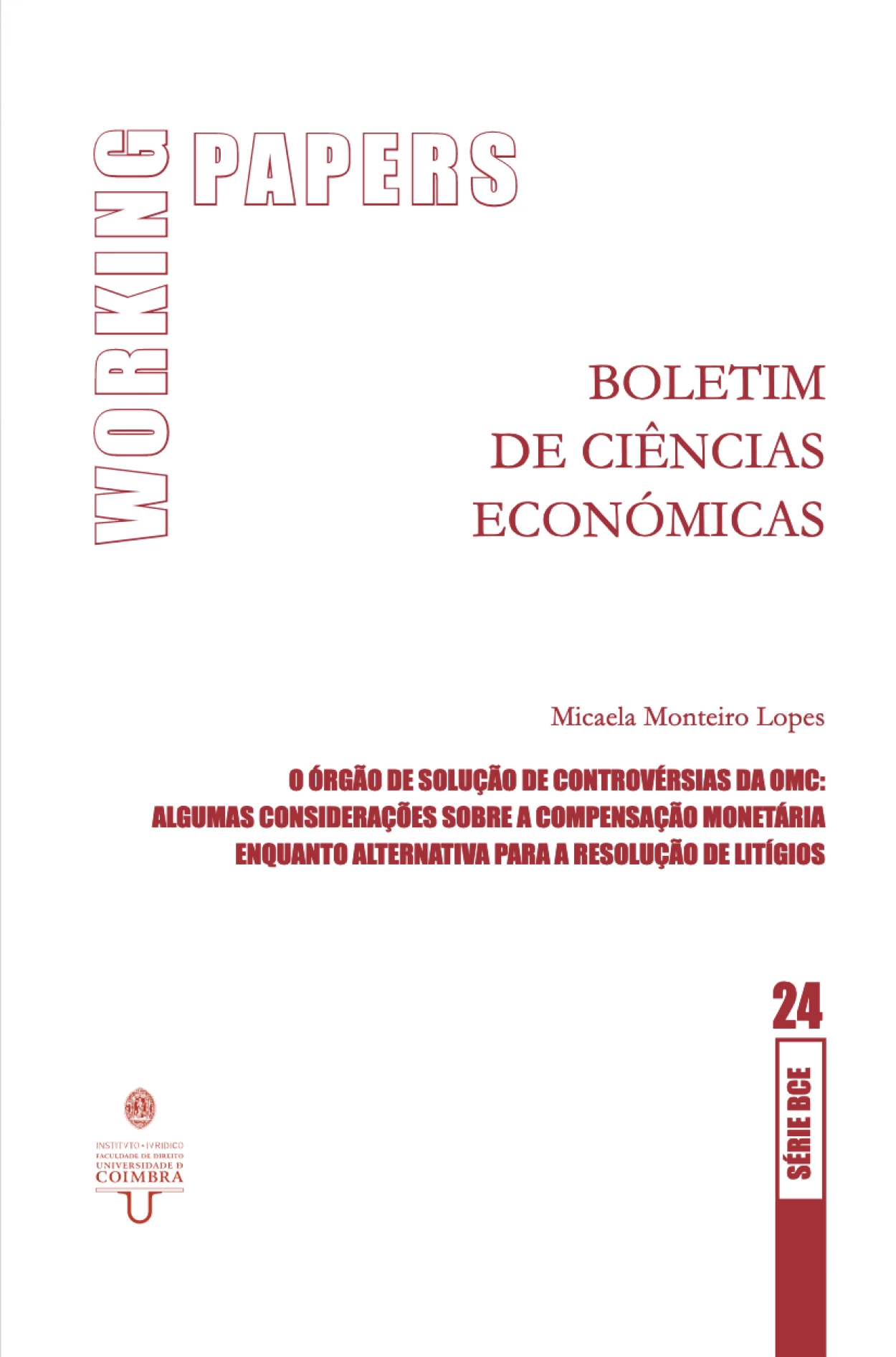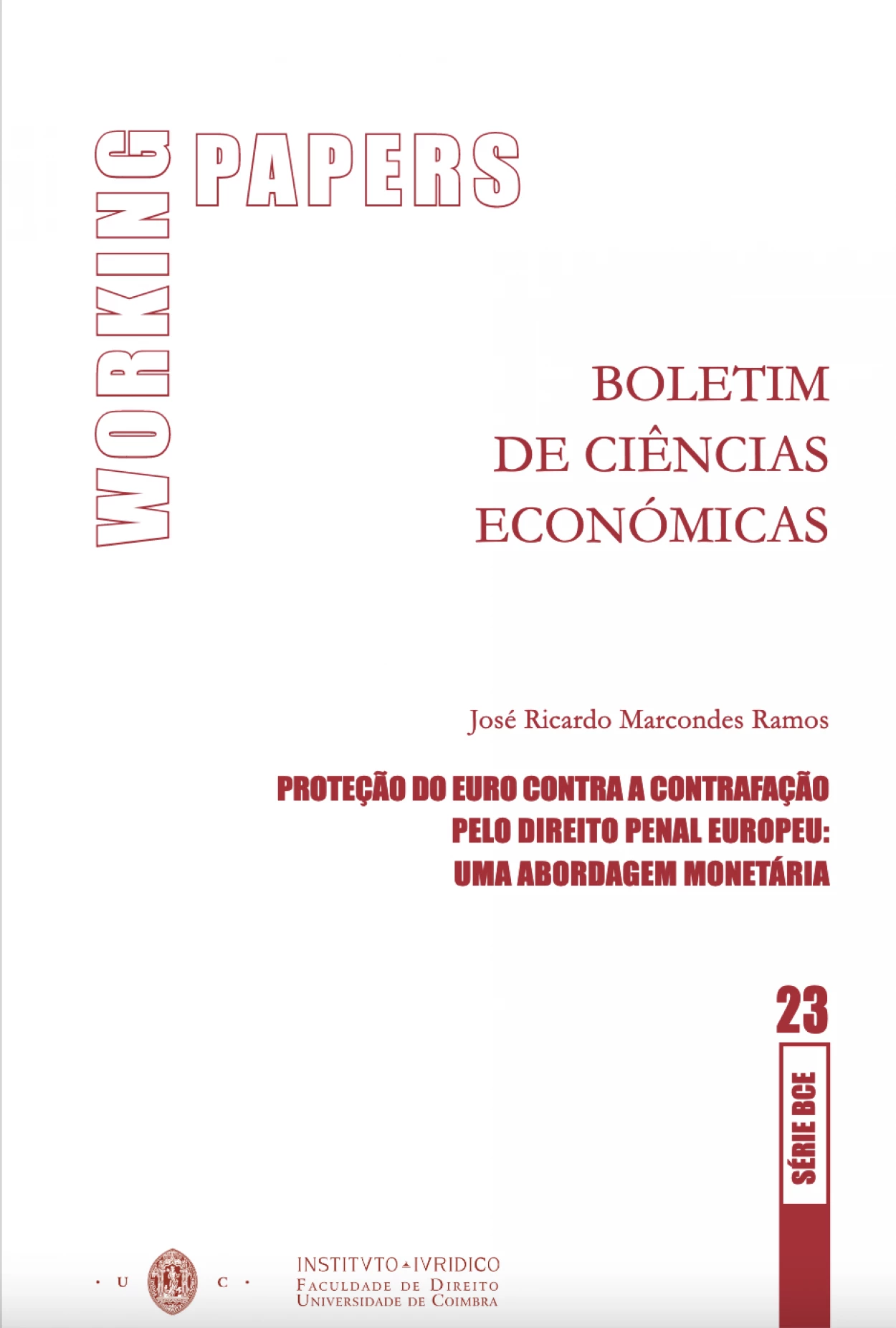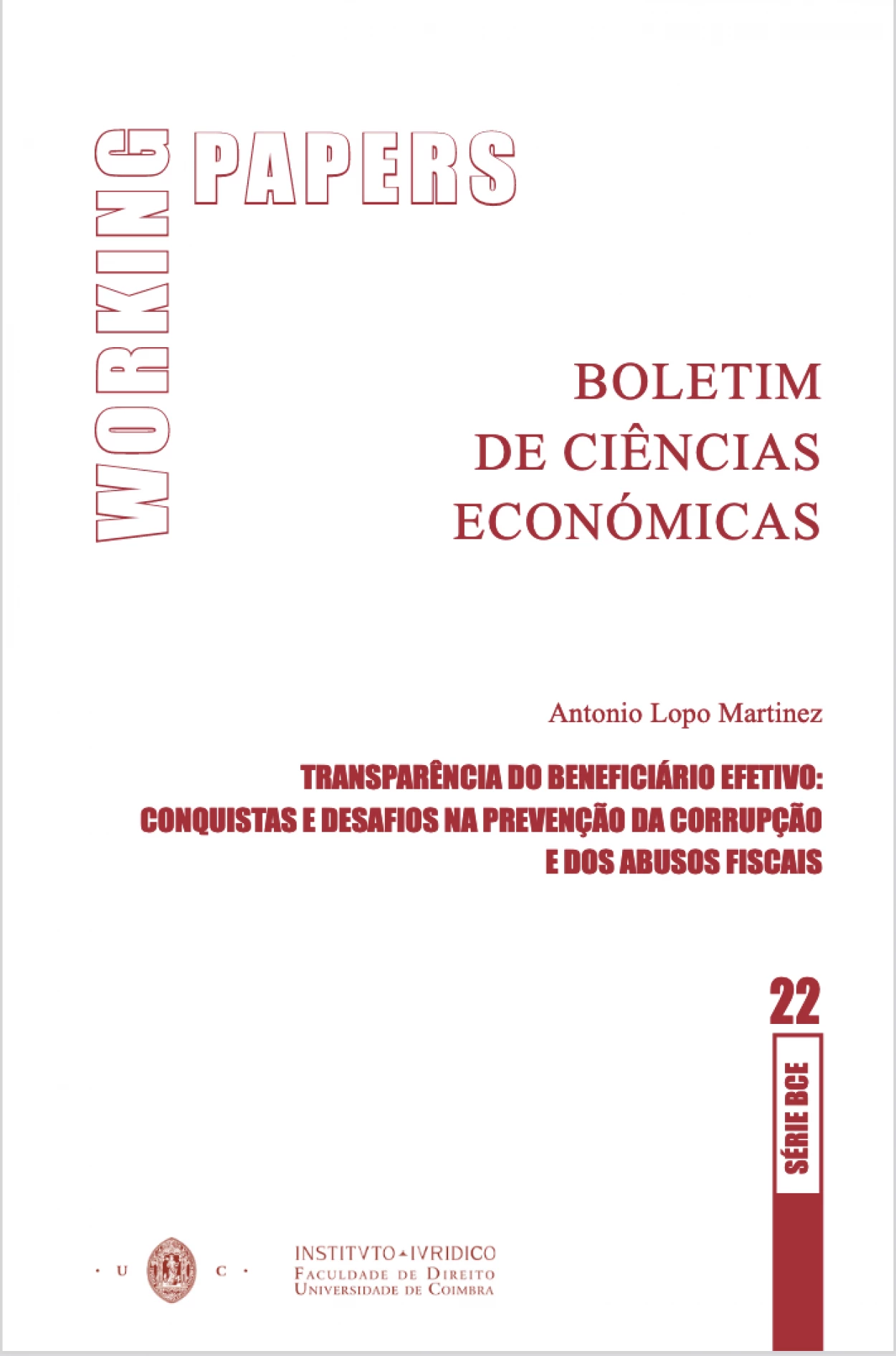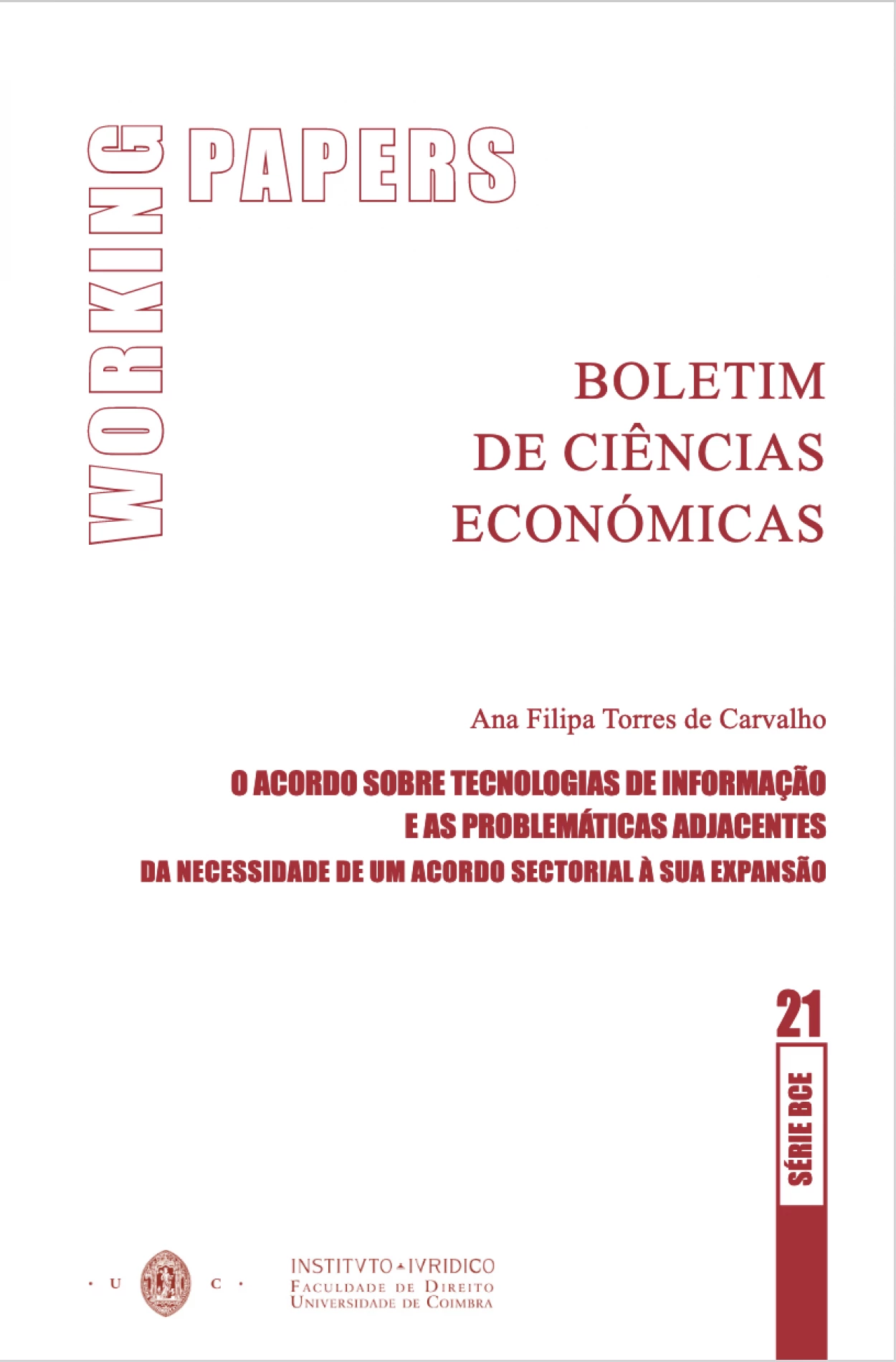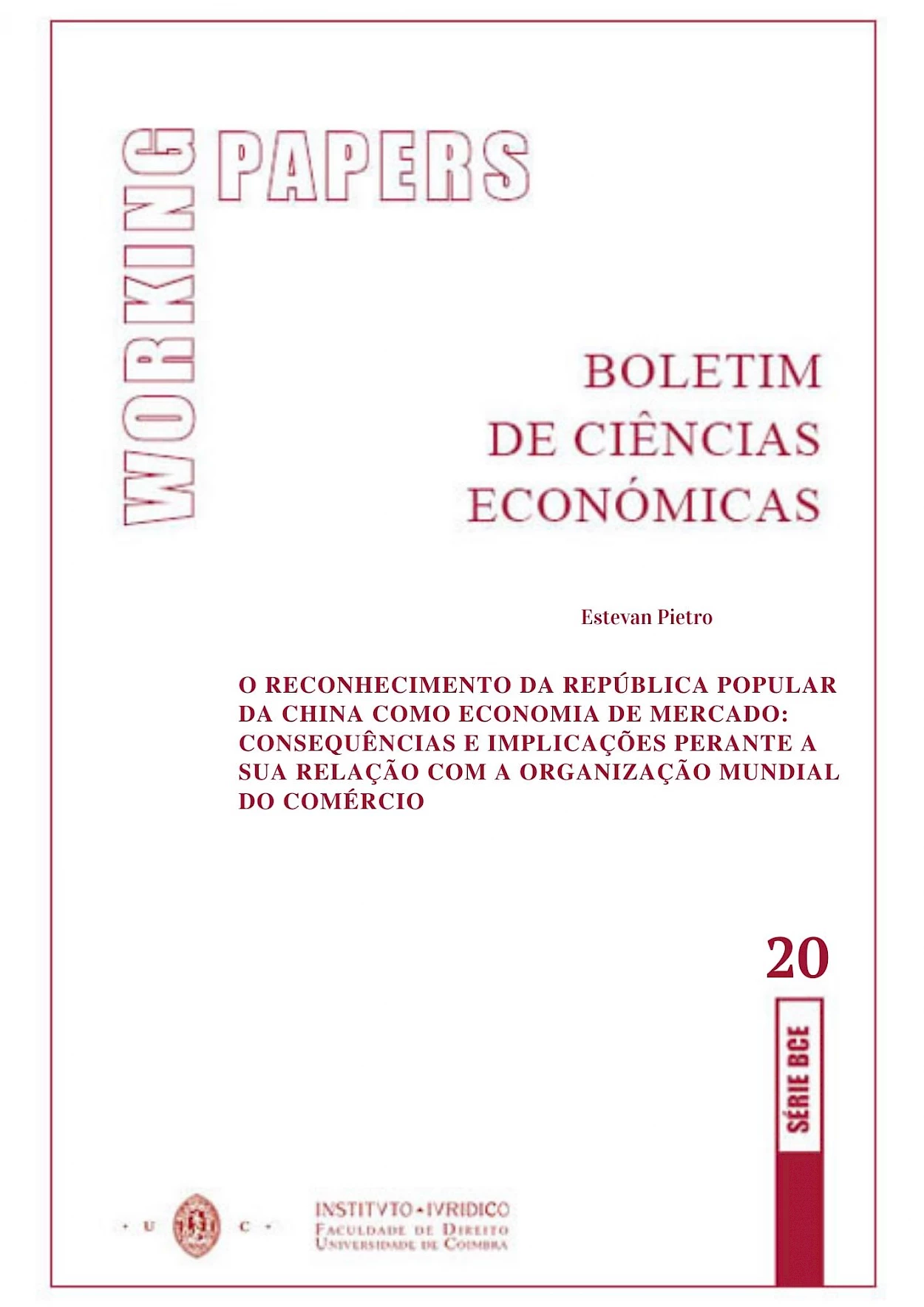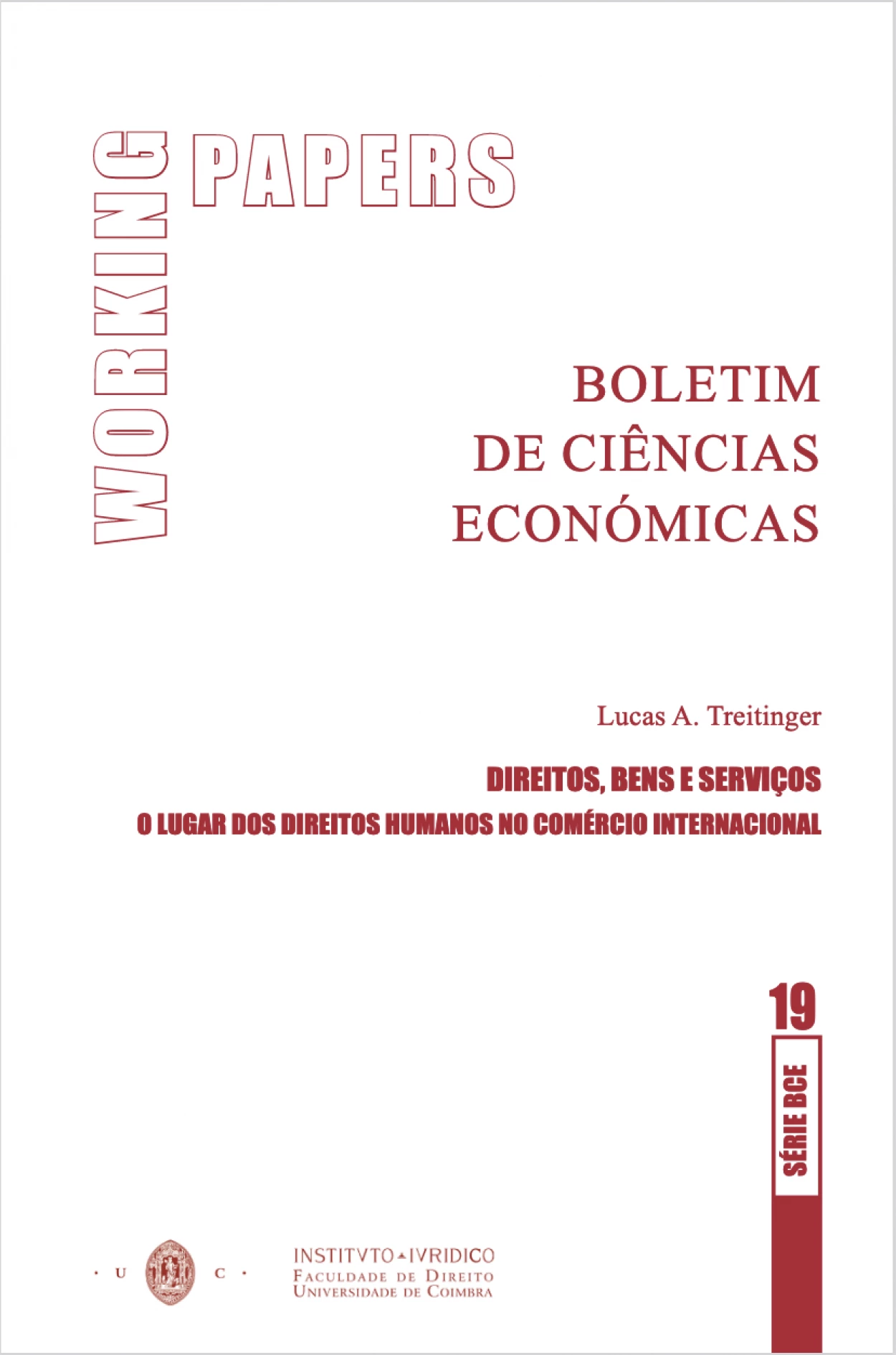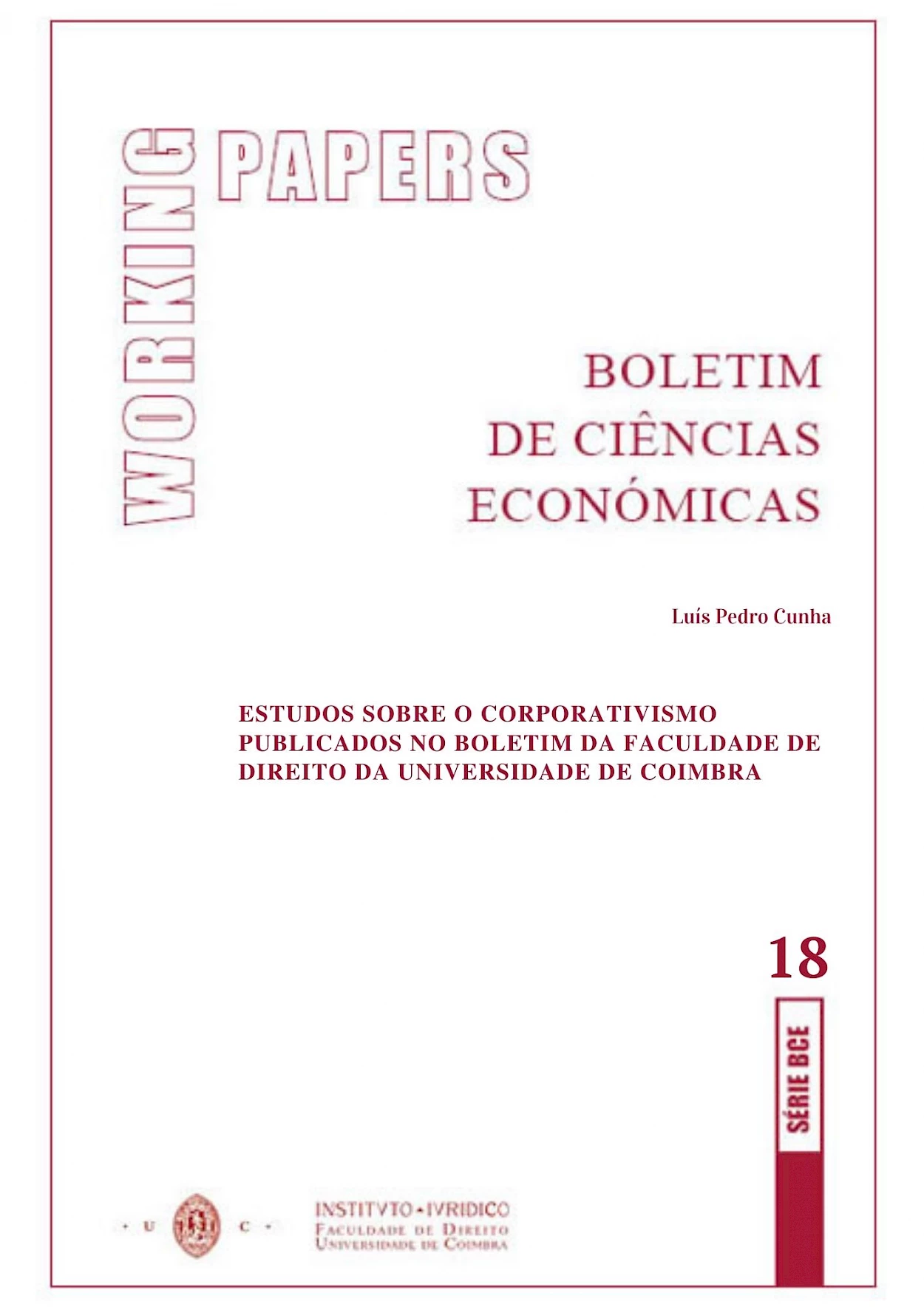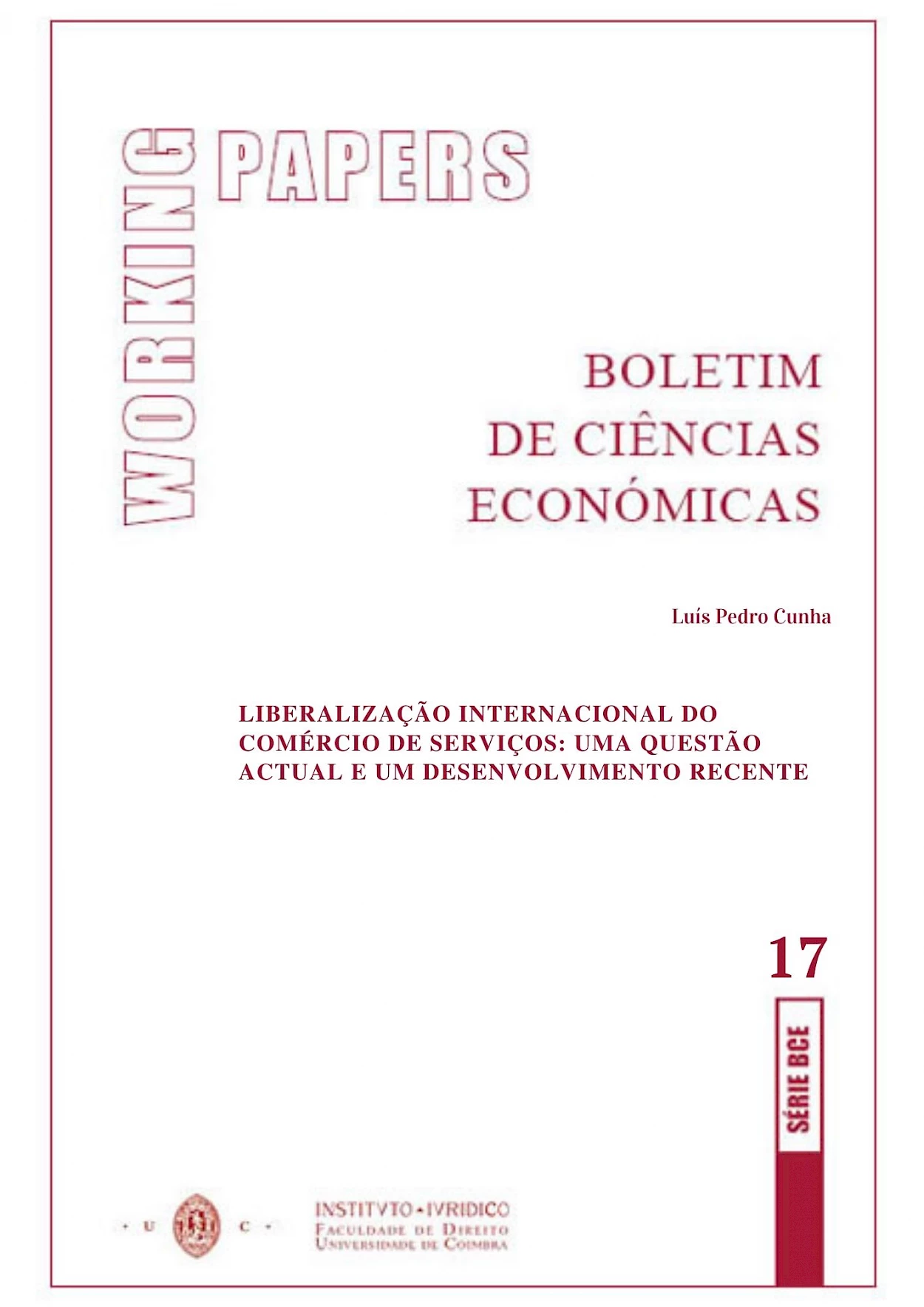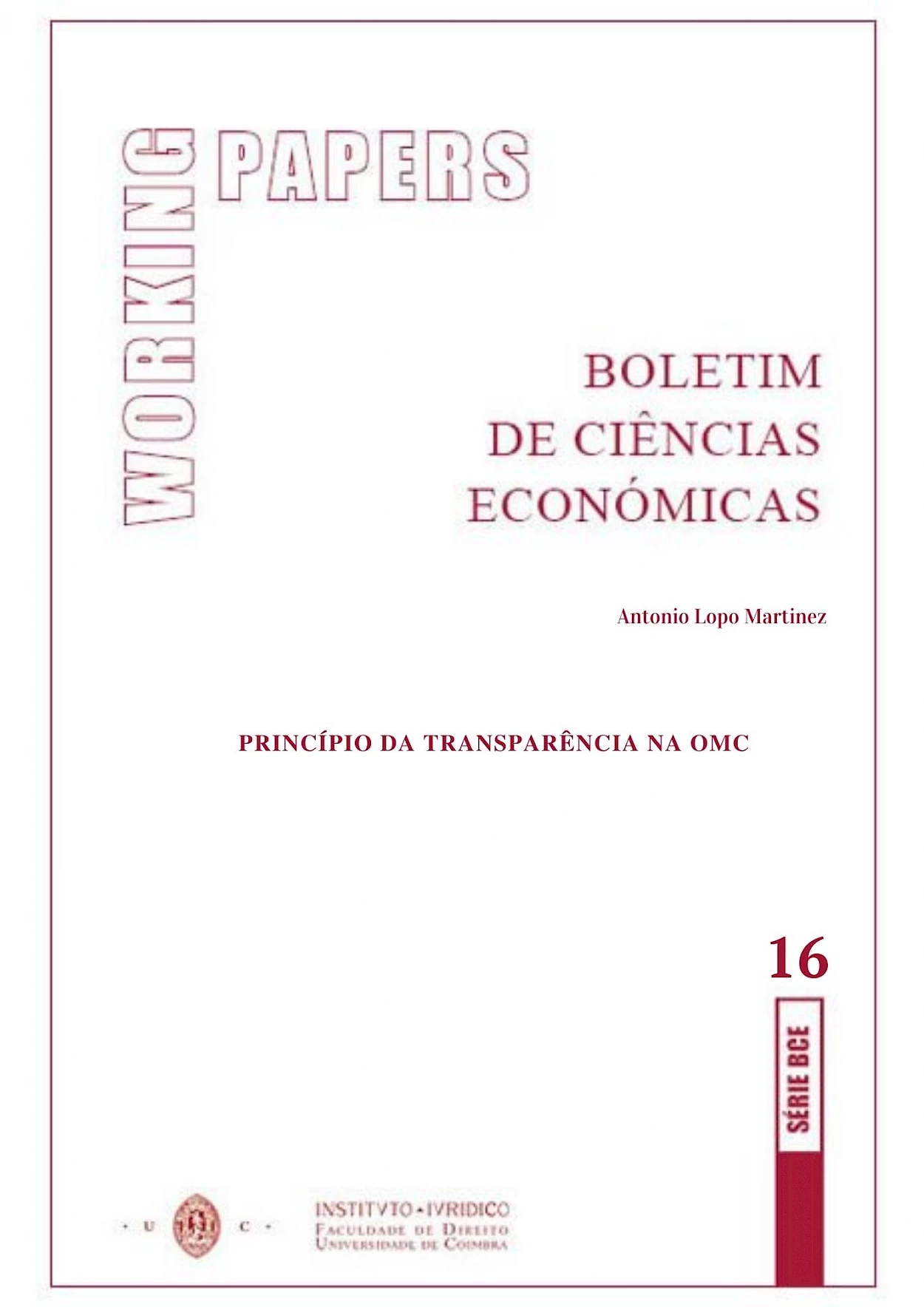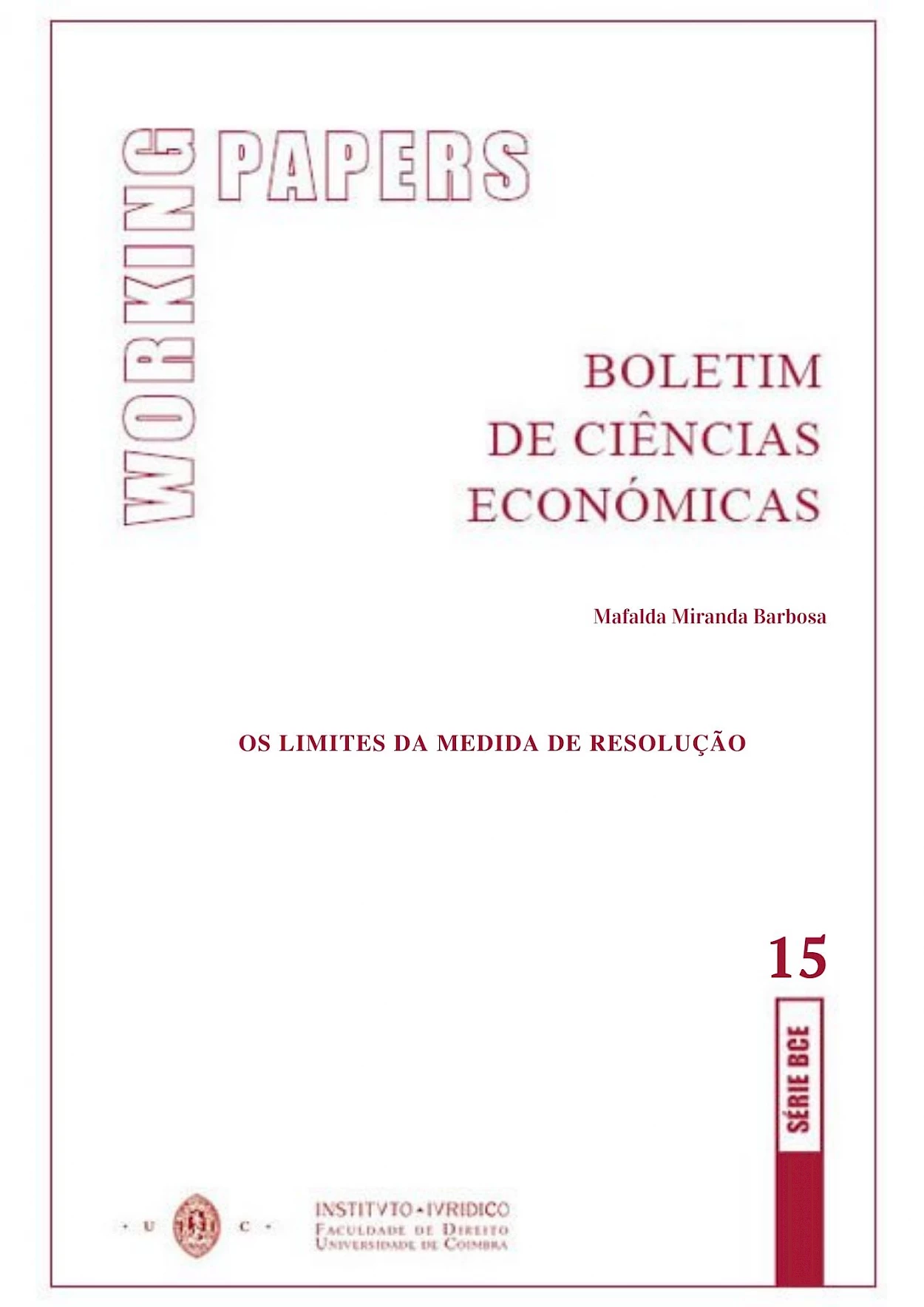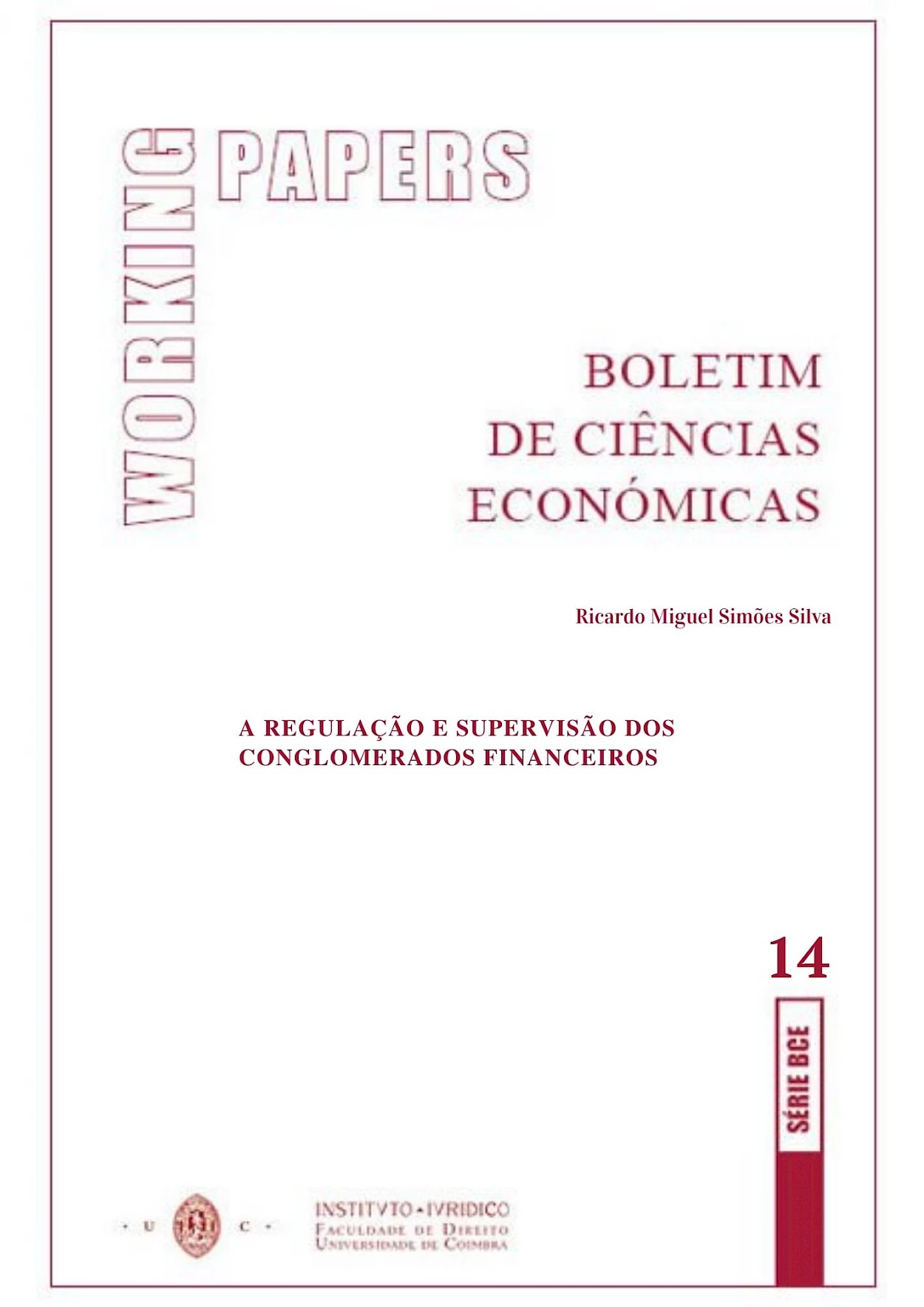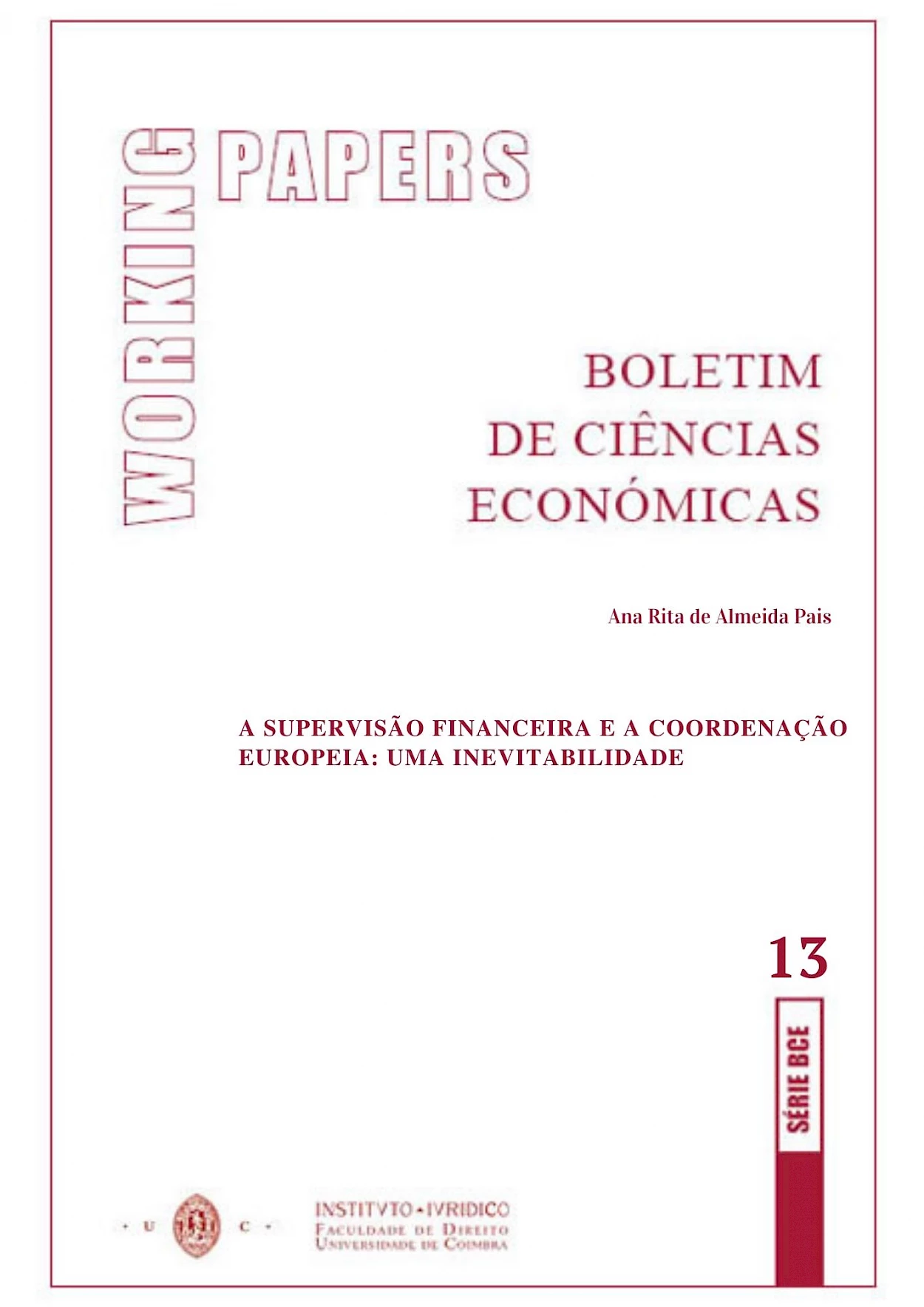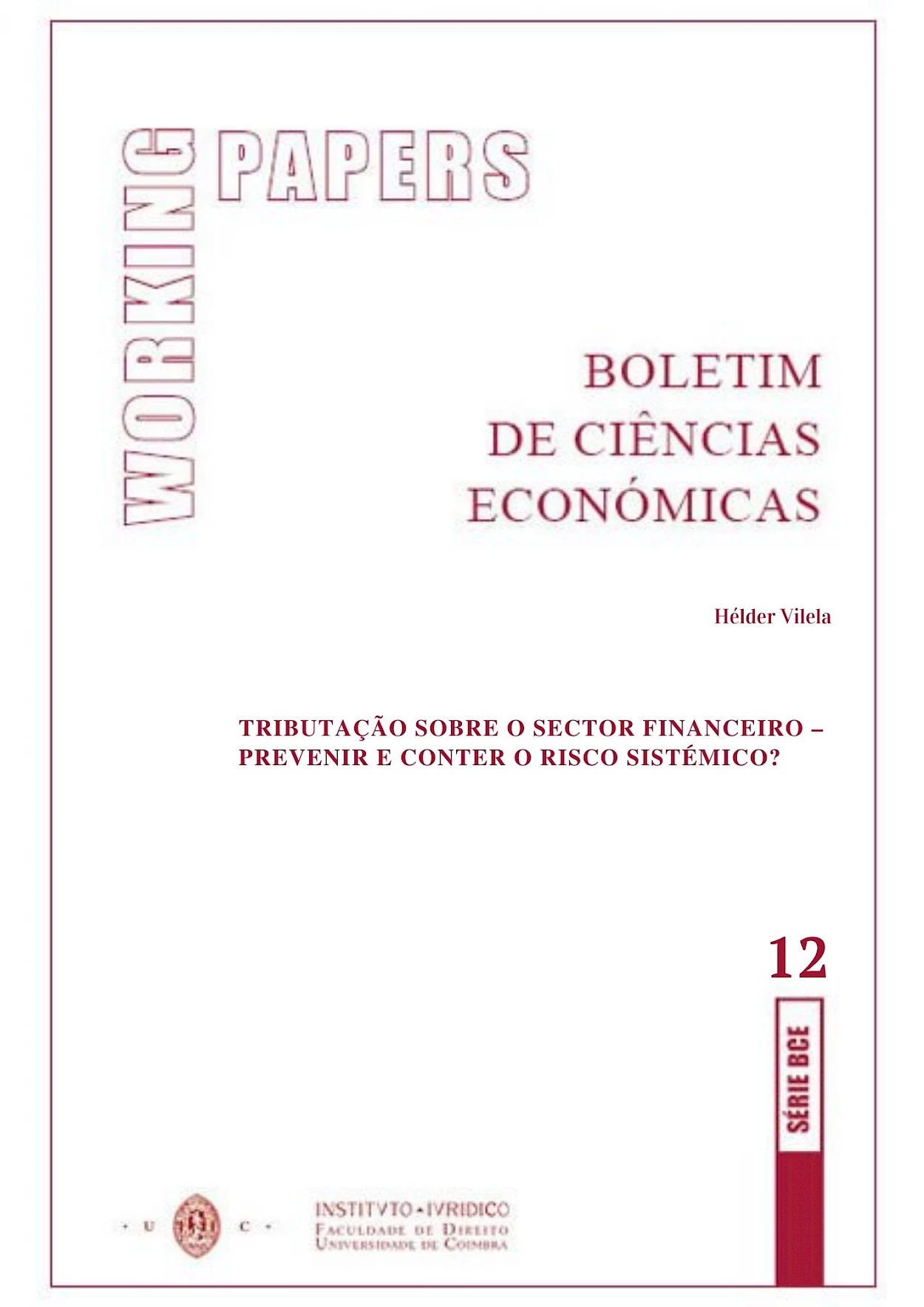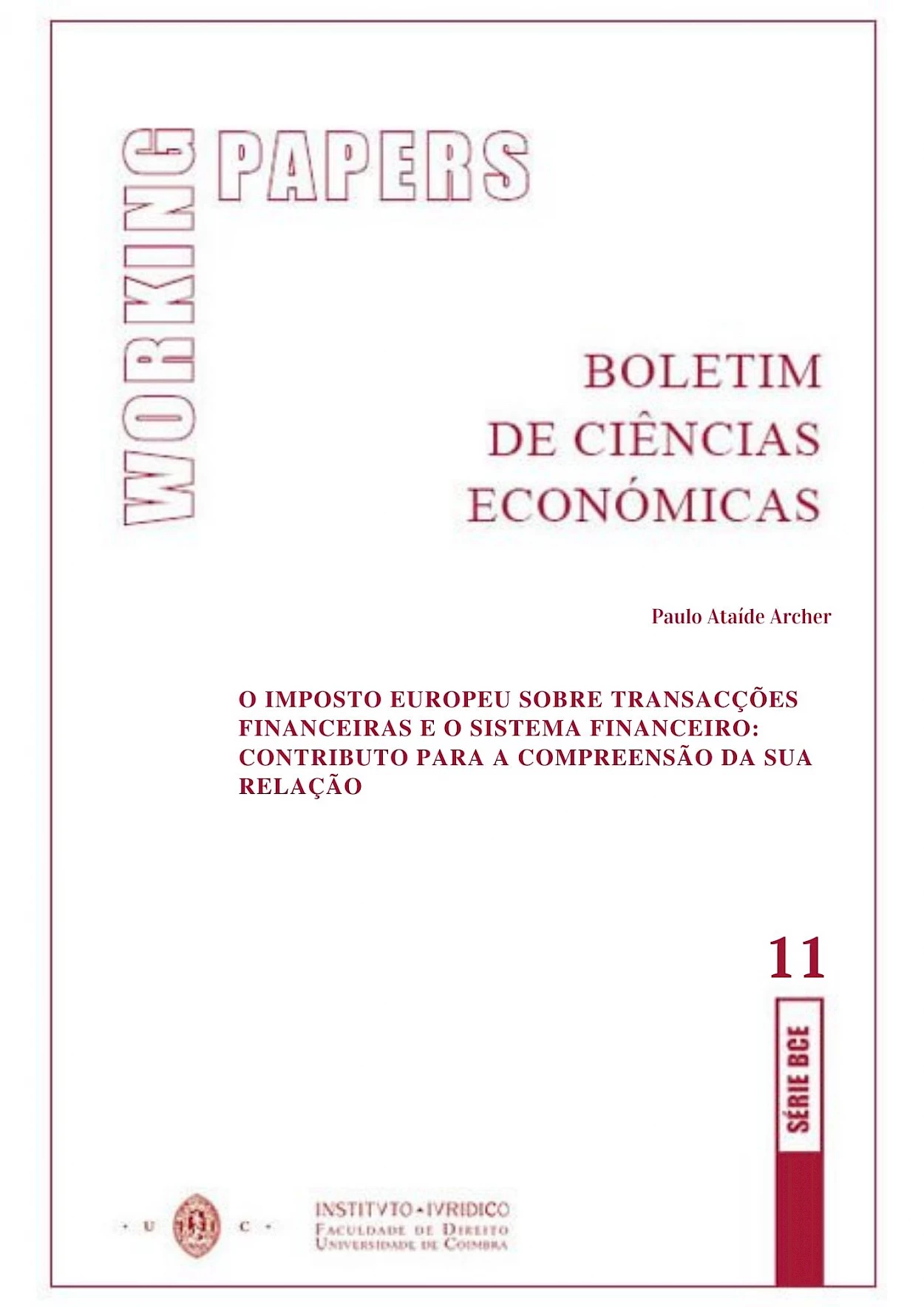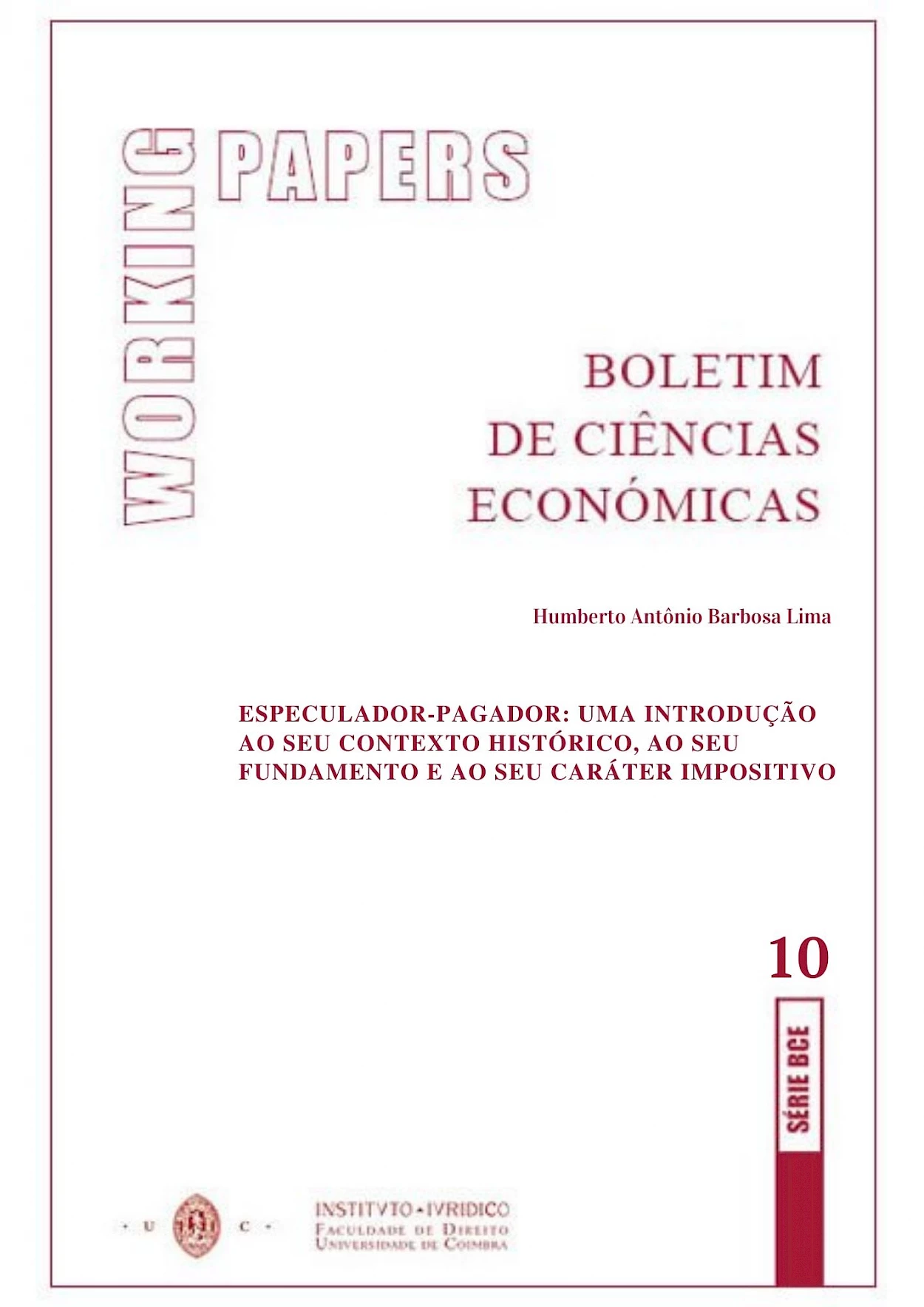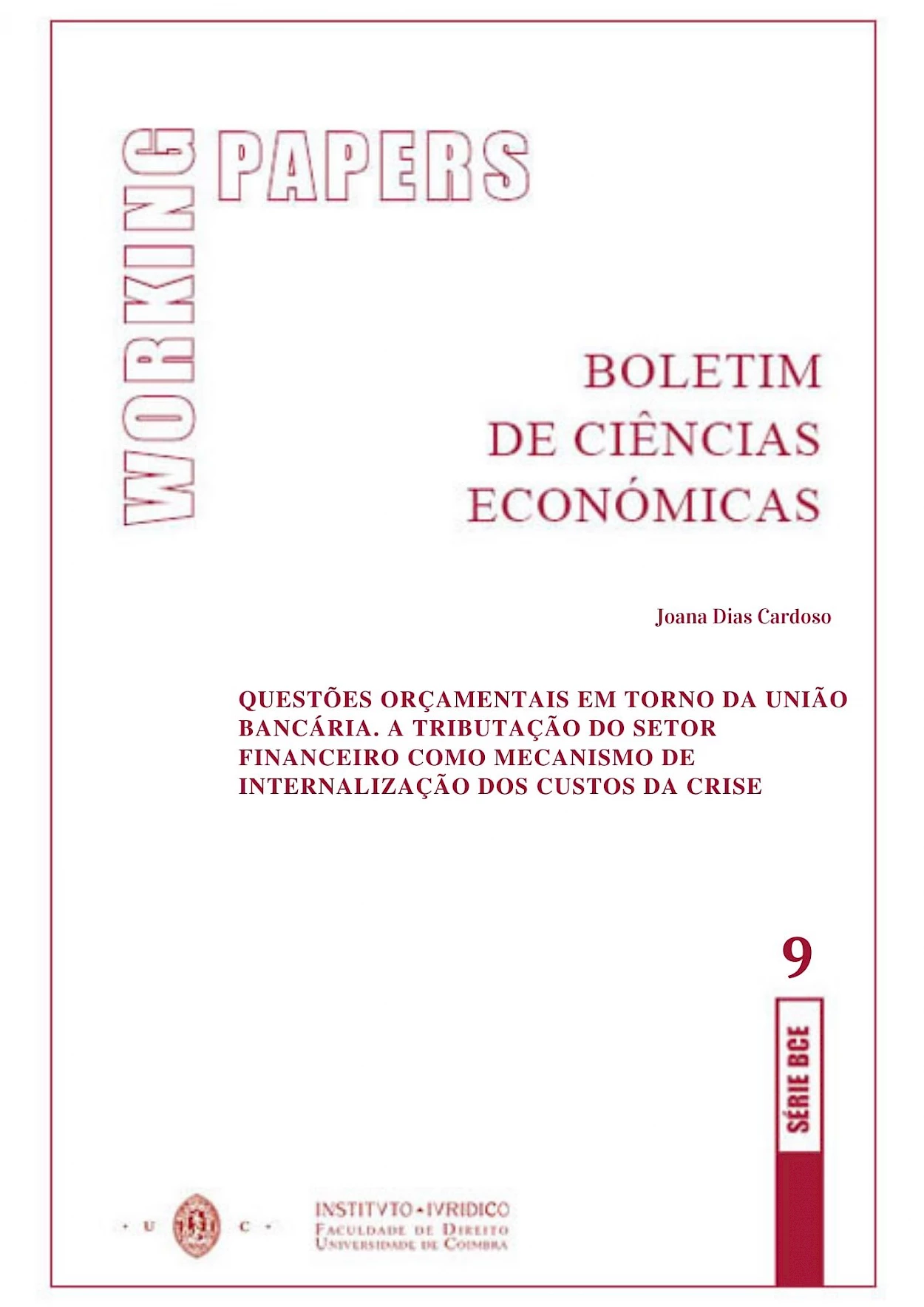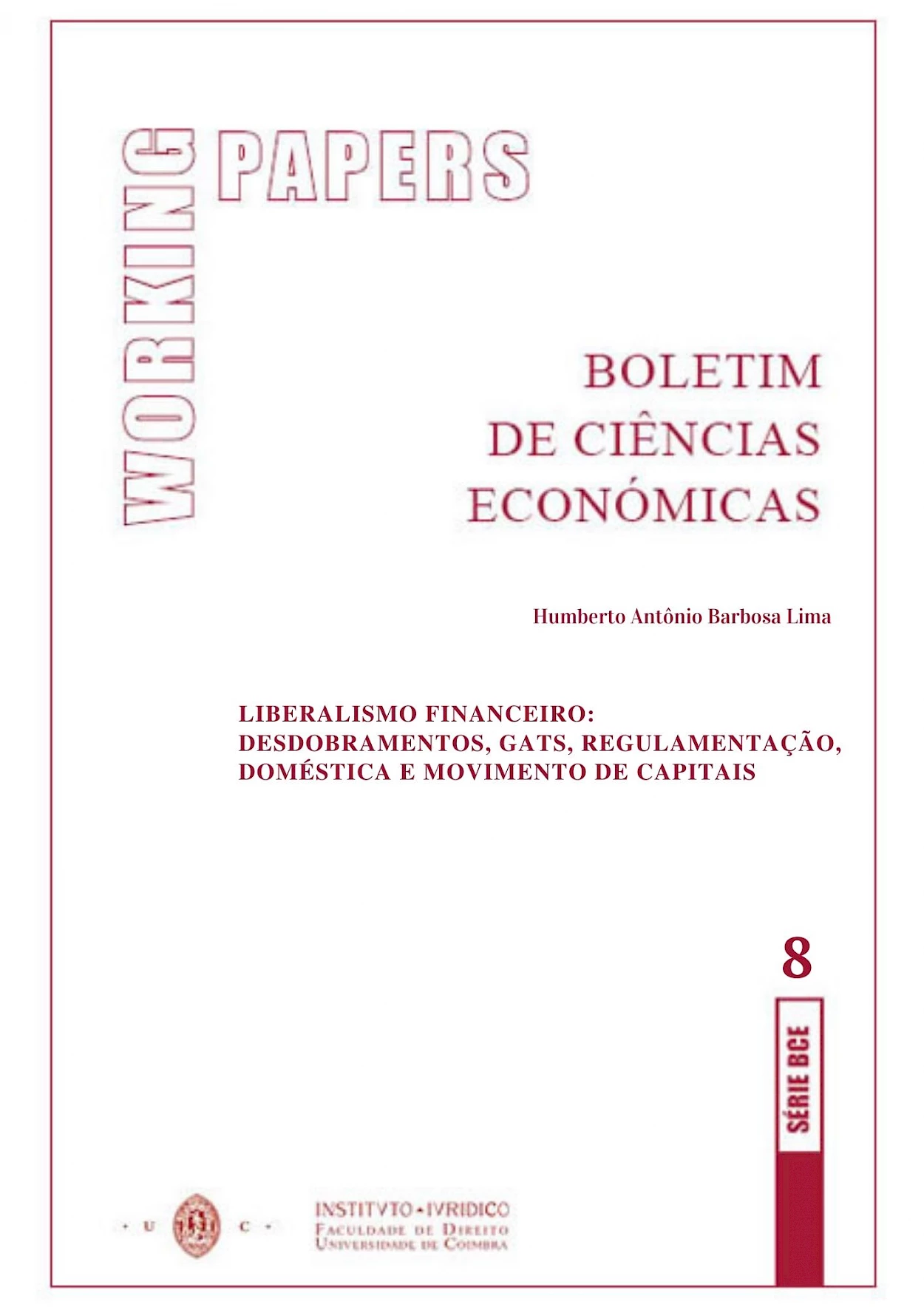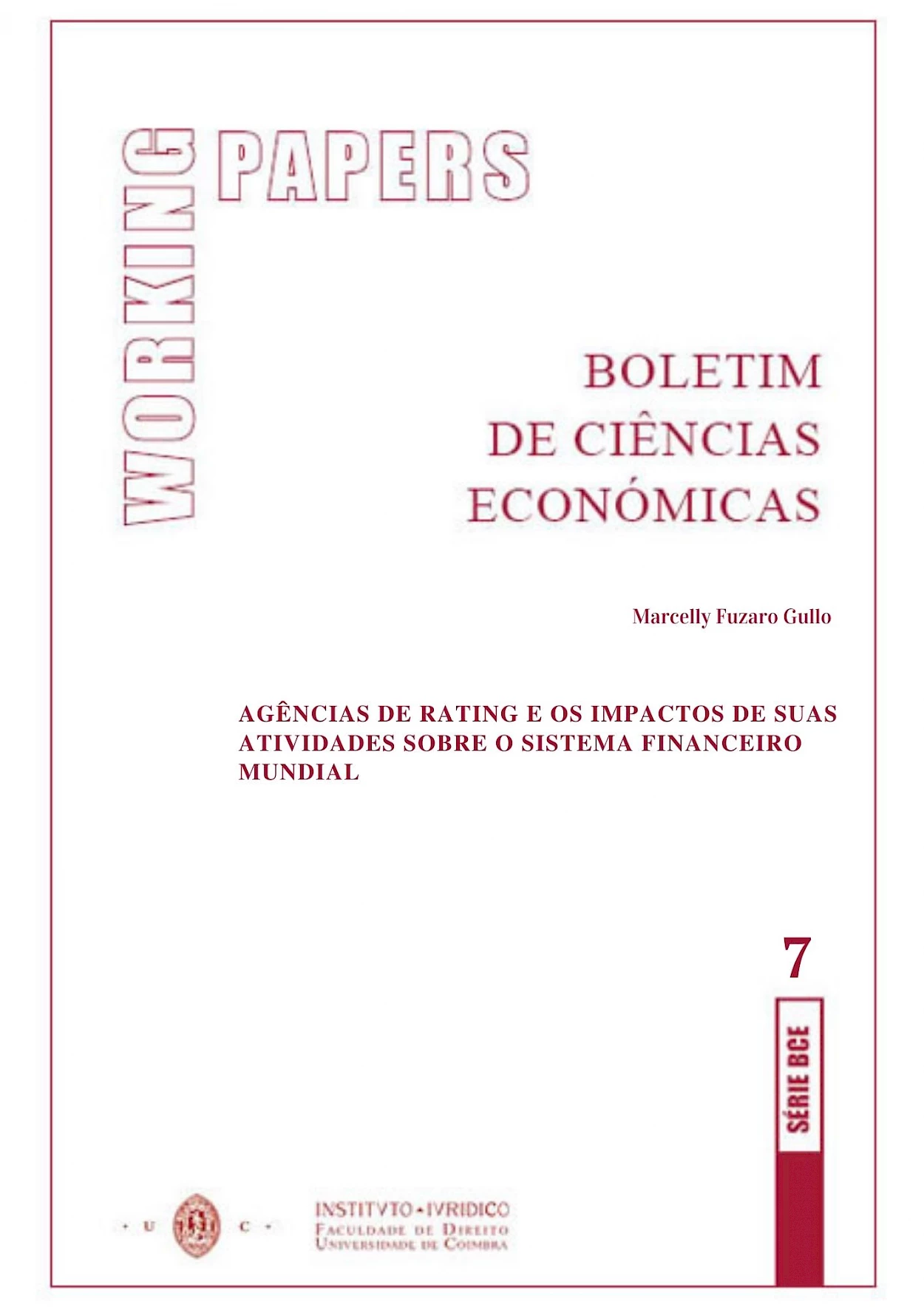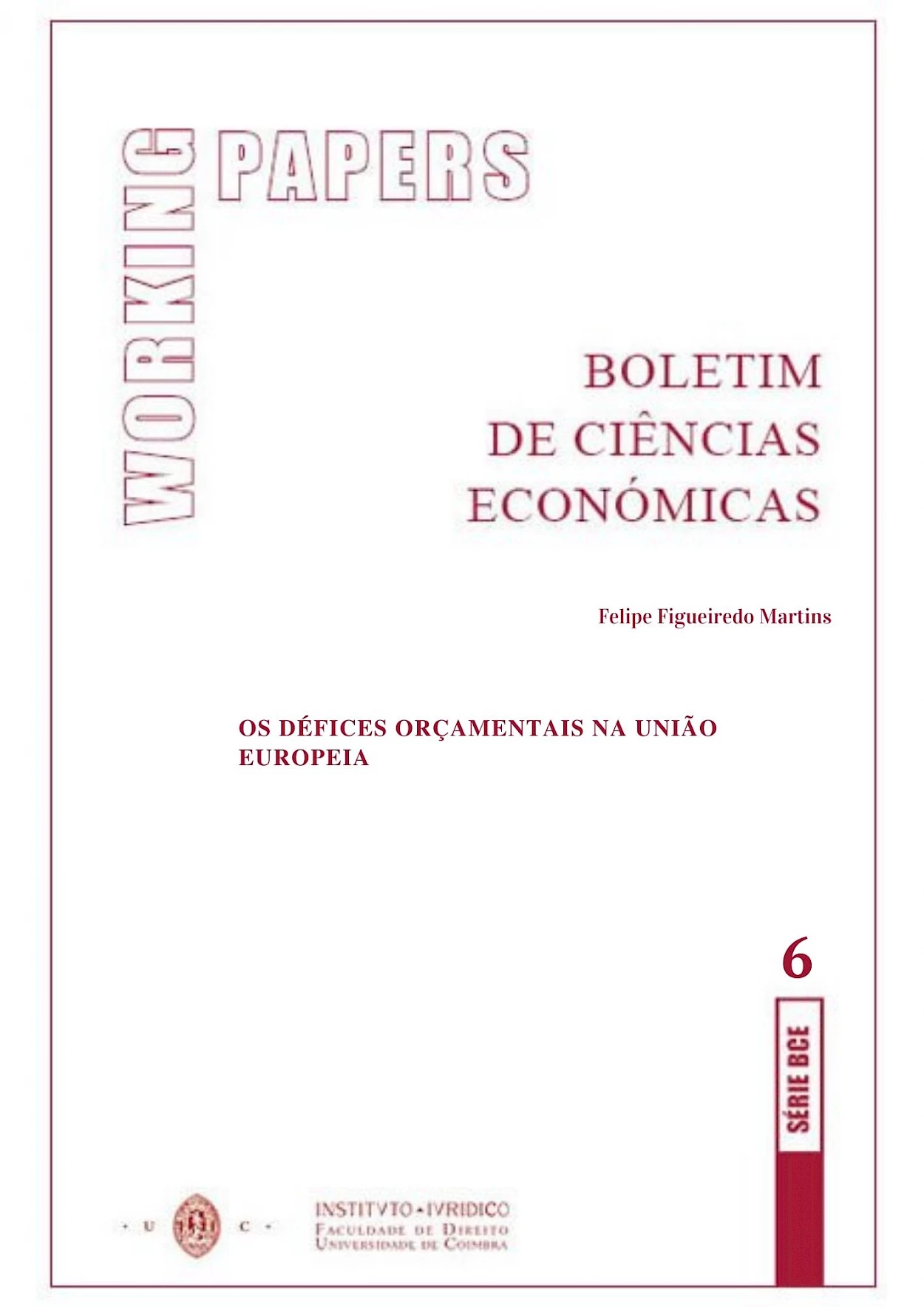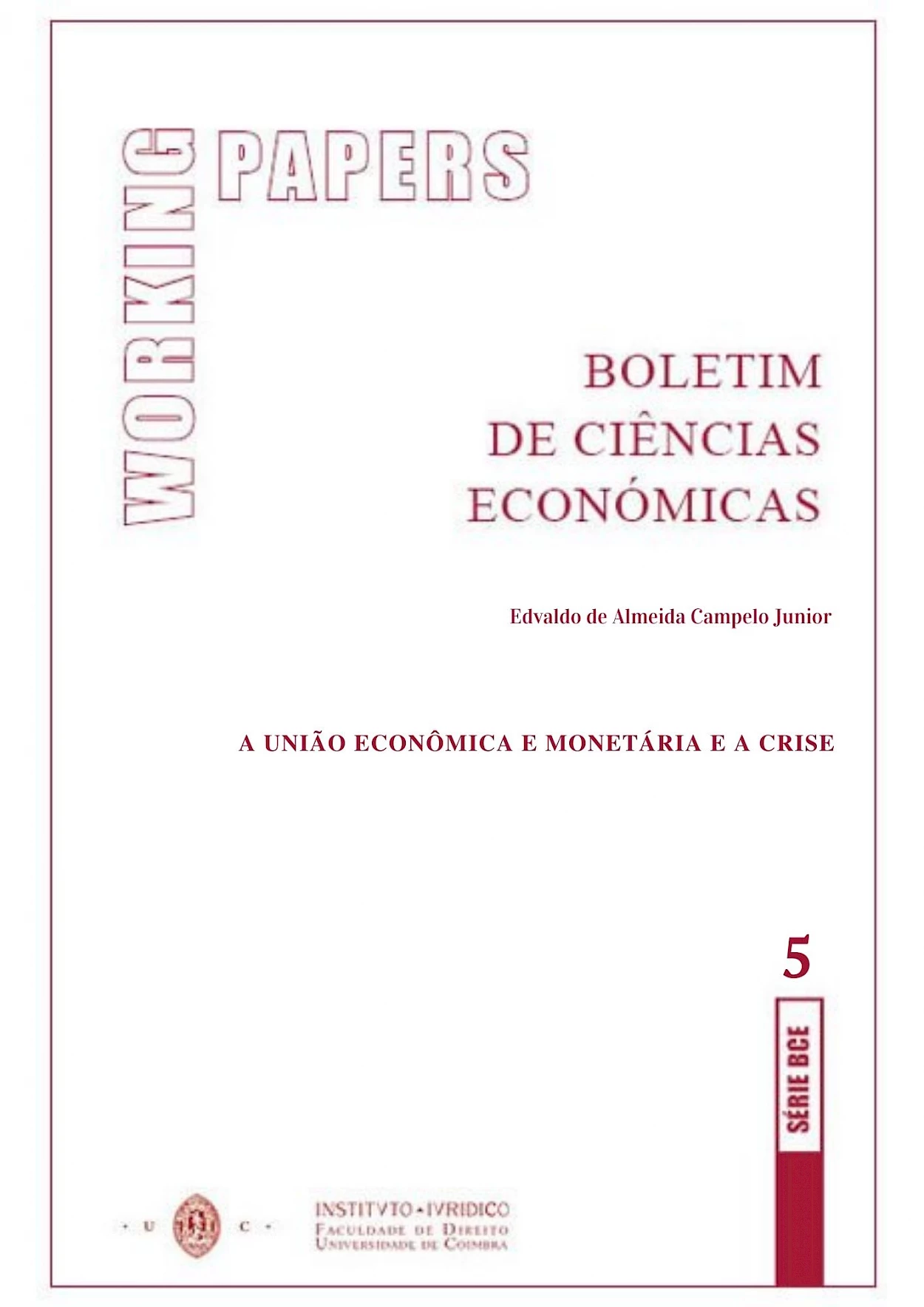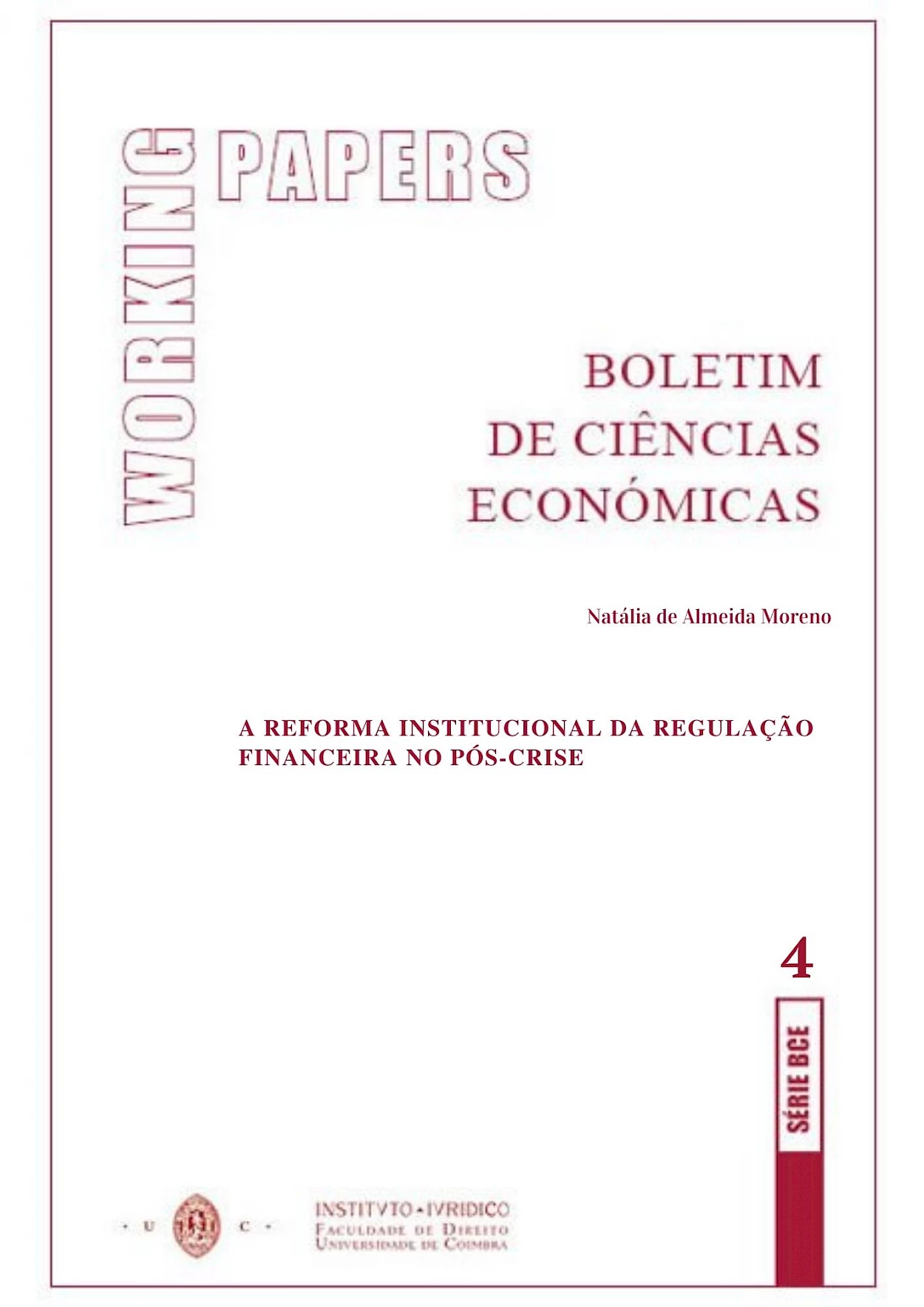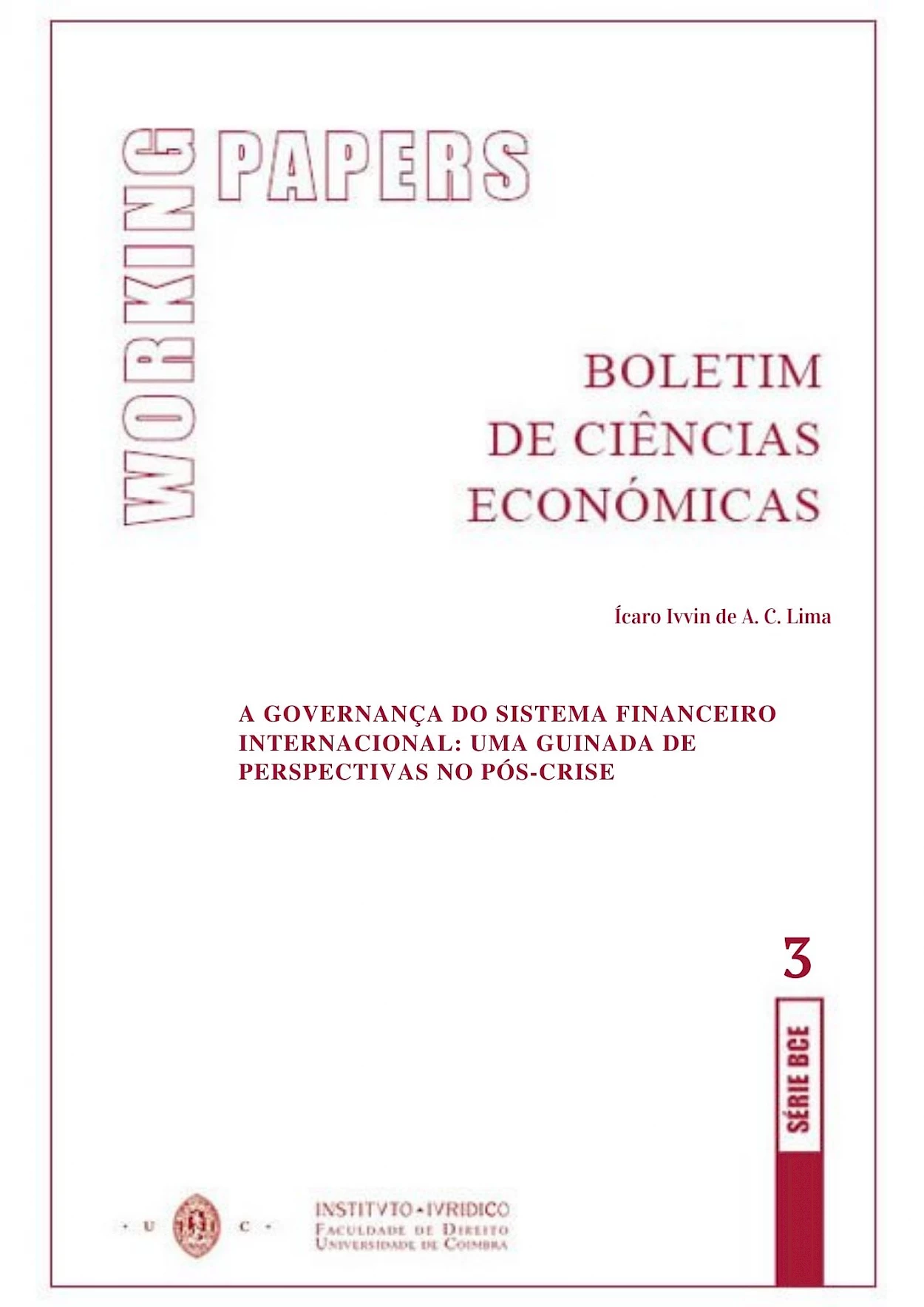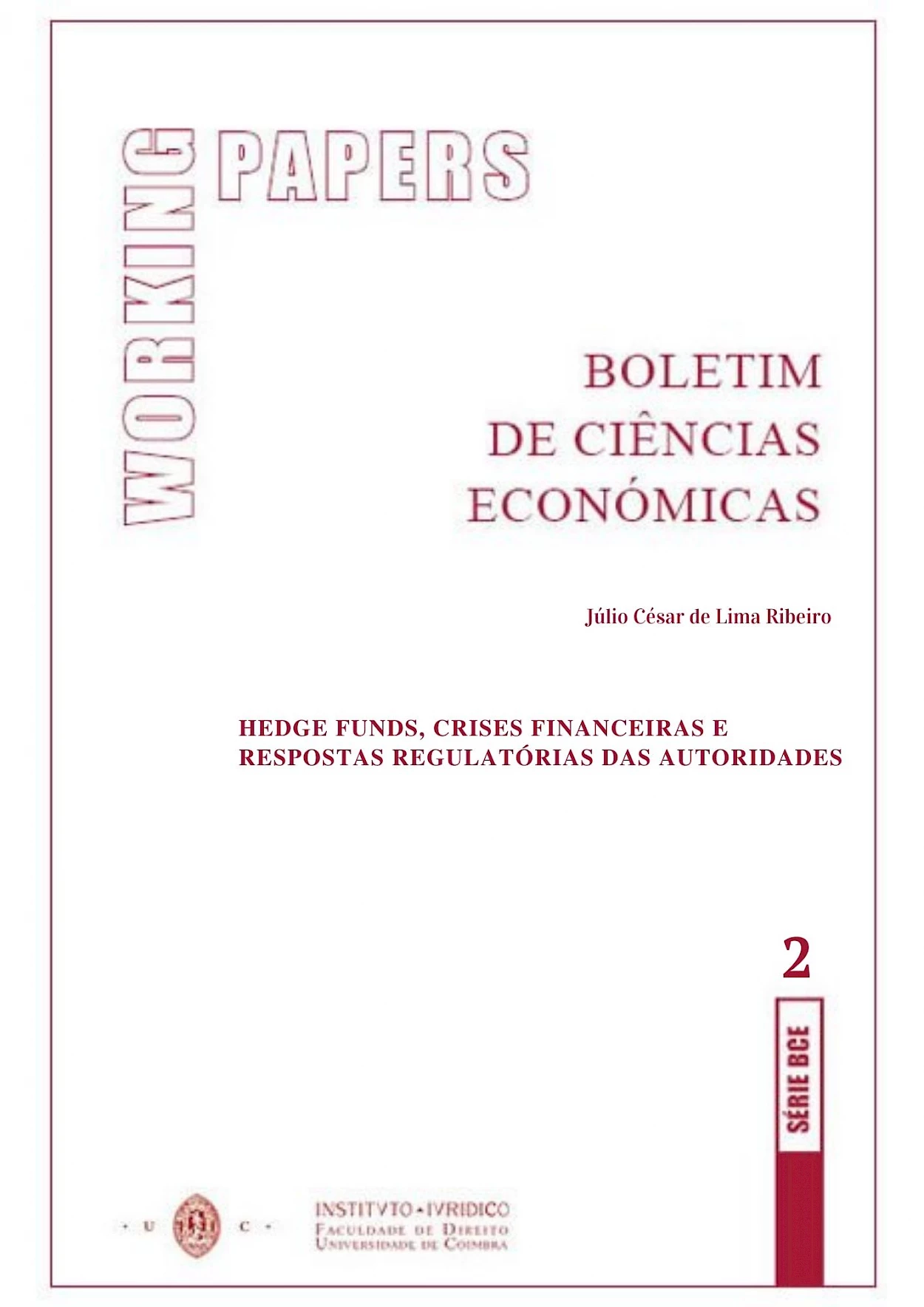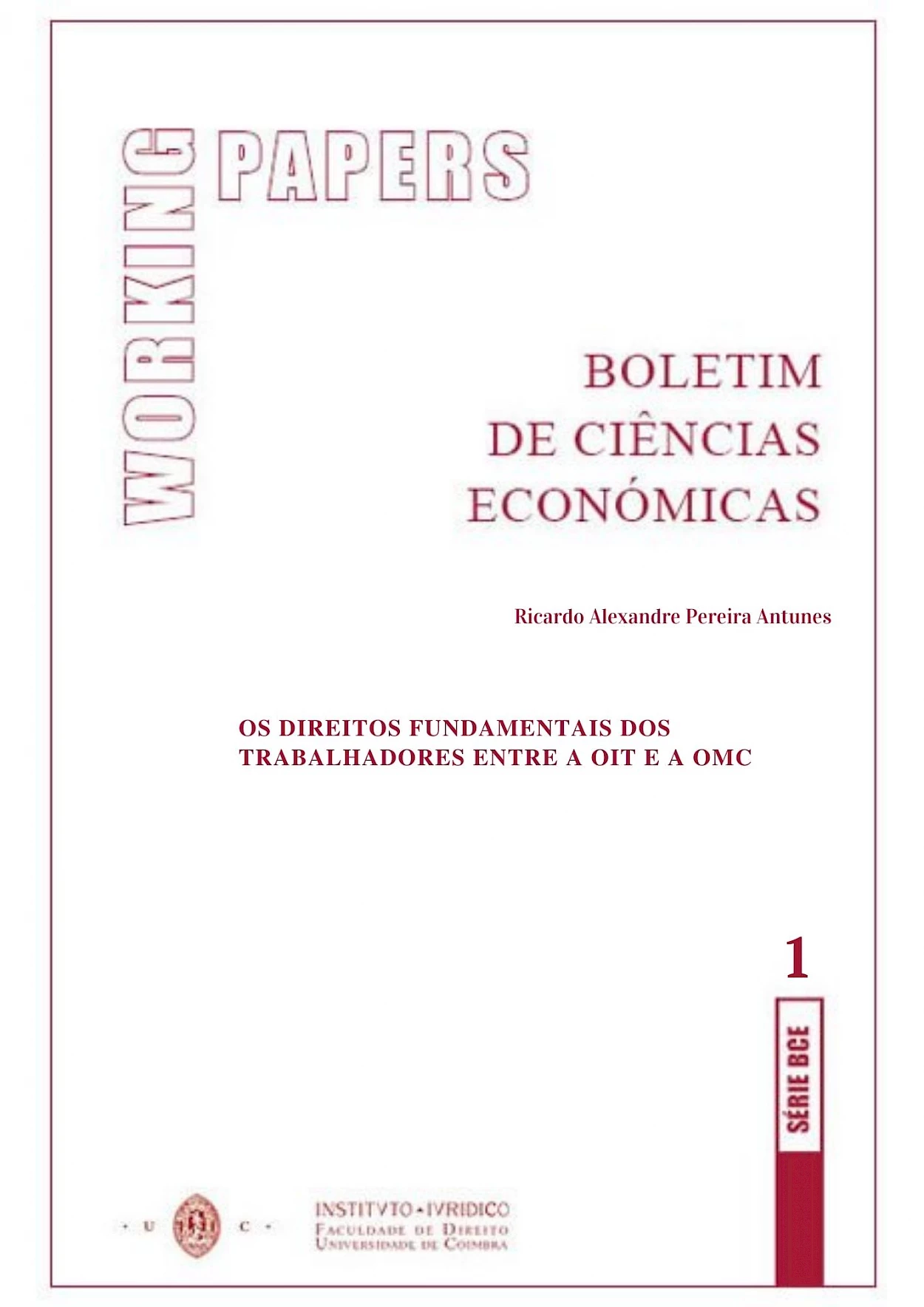WP. 37 · Problems Arising From the Patent Box Regime: The Particular Case of Copyright on Computer Programs
Author: Daniel Taborda, José Ricardo Aguilar
ISBN: 978-989-9075-86-3
Year: 2025
Abstract: Defining the scope of the patent box regime in corporate income tax is complex. The income covered by this tax benefit, particularly the copyright on computer programs, requires a detailed analysis of the nature of the intangible assets that generate it, as well as the various contractual models established by the beneficiaries.
WP. 36 · Border Carbon Adjustment Mechanism and Compatibility with World Trade Organization’s Standards: Match or Swipe Left?
Author: Marcelo António Carneiro Rocha
ISBN: 978-989-8891-77-8
Year: 2024
Abstract: To meet the objectives of the EU’s Fit for 55 package, the European Commission proposes to implement a carbon border adjustment mechanism (CBAM) to replace free allowances for the most trade-exposed emitting industries. CBAM is primarily intended to prevent carbon leakage, but also addresses the thorny issue of compliance by European producers in carbon-intensive industries. Its design in the current Regulation questions compatibility with World Trade Organisation (WTO) rules. The purpose of this paper is to set out the Regulation’s regime and learn about all points of (in)compatibility with the GATT).
WP. 35 · The World Trade Organization’s Role in the Transition to Renewable Energies: the Case of Green Subsidies
Author: Vítor Emanuel Marques Dias
ISBN: 978-989-8891-76-1
Year: 2024
Abstract: Climate change, in the past few years, has been one of the most prominent themes for the public opinion, being also one of the most relevant matters in international trade. For this reason, this study begins with one of the problems that has received the most attention in this regard, action on fossil fuel subsidies, a difficult task to carry out and that is dependent on the WTO’s currently paralysed Dispute Settlement Body. Given the difficulty to restrict these benefits, it was recently created a reform that aims to terminate said subsidies, whilst looking out for the economic needs of nations whose economy depends on the exploration of fossil fuels. On a different note, a lot has also been debated about the (in)compatibility of environmentally friendly subsidies with WTO ́s legislation, being presented numerous proposals to bypass the impositions of the Agreement on Subsidies and Countervailing Measures.
WP. 34 · Taxes in international trade theories and trade policy instruments
Author: Antonio Lopo Martinez
ISBN: 978-989-9075-47-4
Year: 2023
Abstract: The article reviews the economic theories of international trade, emphasizing the role of taxes. In addition to reviewing the main theories, trade-economic policy instruments associated with taxation, such as customs duties, border tax adjustments, and transfer pricing regulations, are discussed. In summary, this study provides an overview of the economic rationale for WTO rules on taxation and the provisions of binding WTO agreements related to border adjustments and internal taxes (direct and indirect). Additionally, it presents a possible economic explanation for these principles by briefly setting out the basic theory of trade policy instruments.
WP. 33 · Notes on Matters of International Trade and WTO: The ‘Classic’ Part
Author: Luís Pedro Cunha
ISBN: 978-989-9075-44-3
Year: 2022
Abstract: This text seeks to address a set of subject matters ‘classically’ related to international trade and the wto. With the ‘new’ themes of international trade regulation being circumstantially forgotten, we are confronted with the topics that traditionally structure wto law thought and the economic approaches that explain this organization and the free-trade tendency that it seeks to establish in the international economy, in compliance with the multilateral trade agreements that it is responsible for enforcing.
WP. 32 · Unit-Linked Insurance Agreements: In Search of a Territory in a Borderless World. Some Notes on Financial Intermediation, Insurances and Civil Liability
Author: Ricardo Gaspar Dias
ISBN: 978-989-9075-11-5
Year: 2021
Abstract: The paper aims at locating the legal framework of the unit-linked insurance agreements in the spectrum of financial law. We intend to highlight the most recent legal developments, imposed by European Union law, that determine the qualification of said agreement as “insurance-based investment products”. The delimitation of the abovementioned legal framework will reveal the harmonization of legislation applicable to financial instruments and to banking agreements and life insurance agreements that partially aim at obtaining a return on capital. Special attention will be paid to the topic of distribution of unit-linked insurance agreements and to the civil liability of the “manufacturer” and insurance intermediary, especially in case of breach of information duties.
WP. 31 · Critical Mass Agreements
Author: Ana Rita Bernardino Silva
ISBN: 978-989-8891-93-8
Year: 2021
Abstract: In this text we identify two main reasons for the current stand-off in the World Trade Organization’s negotiations: the unsuitable nature of the single undertaking principle and the consensus diplomacy. In this sense, plurilateral critical mass agrements emerge, among other forms of differentiated integration, as a potential solution for the development of international trade, which could represent a way to unlock the stalemate underlying the Doha Round.
WP. 30 · Regulation and fight against tax havens at the international level an analysis of the difficulty to find the necessary multilateral protection and the role of the WTO
Author: Paco Manolo Camargo Alcalde
ISBN: 978-989-8891-81-5
Year: 2020
Abstract: This paper deals with the regulation and fight against tax havens, through the analysis of the current stage of regulatory rules regarding this phenomenon and the possible need for a multilateral reach, with the consequent overcoming of the obstacles currently encountered. In the light of WTO rules, we will investigate whether this organization already oversees issues regarding tax havens or should restrict them by law.
WP. 29 · Financial services on gats: analysis of the compatibility of the proposal for a financial transaction tax in the European Union
Author: Thaís Figueiredo Martins
ISBN: 978-989-8891-79-2
Year: 2020
Abstract: The purpose of this paper is to study the compatibility of a Financial Transactions Tax (FTT), proposed for the European Union (EU), with the General Agreement on Trade in Services (GATS). In order to address the analysis of this compatibility, this paper is divided into three parts: first, we introduce the GATS and its main aspects — with a special focus on the financial services; second, we address the topics of regulation and taxation of the financial system, presenting, in this context, the notion of the FTT and the evolution of proposals for a common EU Financial Transaction Tax; to conclude, we assess the compatibility of the European proposal for an FTT with the GATS — emphasizing, in this approach, the exception of paragraph 2 of the Annex on Financial Services, the designated prudential carve-out (PCO).
WP. 28 Chapter V of action 13 of the BEPS plan. The mandatory automatic exchange of information: a morality judgment?
Author: Luís Pedro Ribeiro Alves
ISBN: 978-989-8891-72-3
Year: 2019
Abstract: The constant technological revolution generated the massive growth of digital economy , which nowadays represents a huge amount of money in the economic transactions worldwide. Early on all political actors knew that it would be extremely hard to tax those transactions. Against the base erosion and the profit shifting, the BEPS plan was born, founded in the agreement of all the G20 countries and OECD members. It was in Los Cabos where the BEPS plan was born, creating a new, more transparent world order of international tax law, meeting the challenges of the digital economy. In this study, we will approach the transparency question, from where the automatic and mandatory information exchange comes and the implementation of the BEPS plan in Portugal, especially from the multinational perspective. We will analyse some of the BEPS reports, the evolution of European legislation, and we will end with some tax morale considerations.
WP. 27 · The WTO and its stand-off: An explanatory statement
Author: Luís Pedro Cunha
ISBN: 978-989-8891-75-4
Year: 2019
Abstract: The text lists and makes a critical judgment on the various grounds for the current stand-off in the WTO. The following ones are highlighted: (a) the current weakness and ineffectiveness of the dispute settlement body, (b) China’s full participation in the WTO; (c) the stagnation of multilateralism and the continued celebration of Regional Integration Agreements; (d) the specific cases of regional integration mega-agreements and global value chains; e) the limitations of the plurilaterality formula in the conclusion of international trade agréments.
WP. 26 · The democratic crisis within the WTO
Author: Patrícia Isabel Nunes Nardo Pires
ISBN: 978-989-8891-71-6
Year: 2019
Abstract: The main goal of this paper is the study of the democratic crisis within the WTO, focusing on topics such as the international trade negotiation rounds that have been held over the years and the consensus rule in negotiations. In order to understand the main goal of this work, we must take into consideration the Green Room system, in particular its practical function and the positive and negative criticisms aimed at this system. Furthermore, it is also needed to mention the coalitions, since they gain importance as a possible reaction to the negative criticisms against to the Green Room.
WP. 25 · The U.S. Tax Reforms and the WTO
Author: Antonio Lopo Martinez
ISBN: 978-989-8891-57-0
Year: 2019
Abstract: The article aims to appreciate the U.S. tax reforms, especially in topics related to international taxation, emphasizing the analysis of their potential incompatibility with the World Trade Organization (WTO) law. It will be discussed in the U.S. international tax framework before the U.S. tax reforms, and what primary changes will be introduced by the Tax Cuts & Jobs Act (TcjA). Following a discussion regarding how taxes can be a trade barrier, it was identified that the U.S. tax rules may not comply with the WTO law. This article provides a brief review of the previous U.S. cases in the WTO, related to taxation, with issues similar to the failures raised in connection with the TcjA, and how the WTO dispute resolution has ruled against the US perspective. The paper concludes with an analysis of what could be done about the tax reforms by trade partners within the WTO, and provides some possible paths to be followed, especially by those who feel hurt by the changes.
WP. 24 ·The WTO dispute Settlement Body: Some Considerations on Monetary Compensation as an Alternative for the Settlement of Disputes
Author: Micaela Monteiro Lopes
ISBN: 978-989-889-42-6
Year: 2019
Abstract: To encourage its members towards implementing decisions, gatt 47 envisioned in Articles xxii and xxiii two instruments for the regulation and settlement of disputes. It was only in 1994, in the Uruguay Round, that the Dispute Settlement Body was established to remedy the existing fragilities and to introduce a procedure that would guarantee to the States an efficient conflict resolution. However, the Dispute Settlement Body is not infallible, fundamentally because the instruments established to coerce the offending State to adapt its conduct have highlighted the inequities still existing between developed and developing countries. This has led to alternative proposals including monetary compensation. Although this solution also poses gaps and raises certain issues that need clarification, it is presented as the alternative with greater justice, effectiveness and equality.
WP. 23 · The Protection of the Euro against Counterfeiting by European Criminal Law: A Monetary Approach
Author: José Ricardo Marcondes Ramos
ISBN: 978-989-8891-30-3
Year: 2018
Abstract: Even before the euro was launched as an official currency, measures had been taken in the eu to ensure its protection against counterfeiting, both at the administrative and the criminal sphere. As the protection against money counterfeiting already existed before the creation of the single currency, this paper investigates the main reasons for the protection of the euro against counterfeiting as a matter of Community interest. For this purpose, a functional approach about the currency is used to identify the legal assets harmed by counterfeit currency and its introduction into the economy and, starting from this premise, discuss the protection of the euro against counterfeiting through criminal law as a legal asset at the Community level.
WP. 22 · Transparency on Beneficial Ownership: Achievements and Challenges in the Prevention of Corruption and Tax Abuse
Author: Antonio Lopo Martinez
ISBN: 978-989-8891-29-7
Year: 2018
Abstract: The present study aims to review on the transparency of the beneficial ownership of companies and legal arrangements and their importance in combating corruption and tax abuses. The concept of beneficial ownership and the risk of opacity and secrecy is discussed, particularly in view of the recent revelations from the Panama papers and Paradise papers. Normative achievements regarding the evidence of the beneficial owner against corruption are exposed from their genealogy, international agreements and conventions until their implementation in the domestic law in Portugal and Brazil. The main challenges in the theme are identified, namely: i) the establishment of open central registers of beneficial ownership, ii) the implementation of automatic mechanisms for the exchange of information of beneficial ownership, iii) the requirement of standardization and verification of this information, and iv) the committed and proactive stance of the governments for the dissemination and access of this information to potential interested in combating the offences perpetrated by the use of anonymous companies.
WP.21. Information Technology Agreement and related issues: From the Need for a Sectoral Agreement to the Expansion of the Agreement
Author: Ana Filipa Torres de Carvalho
ISBN: 978-989-8891-12-9
Year: 2018
Abstract: This paper focuses on the analysis and presentation of the ITA within the World Trade Organization (WTO). We intend to address the reasons behind, and the needs for a sectorial and plurilateral agreement regarding information technologies, namely, how it was carried out, the discussion process and the outcome of that process. One key outcome being the Ministerial Declaration on Information Technologies, which we will explore further in this paper. In the second part, we will be analyzing the ITA itself, focusing specifically on its importance within the WTO. Finally, the emerging litigations of the ITA and the reasons that led to an expansion in the products that it covered will be the main focal points, while being mindful of the changes carried out by the new document.
WP.20. People’s Republic of China As a Market Economy Consequences and Implications Regarding the Wor ld Trade Organization
Author: Estevan Pietro
ISBN: 978-989-8891-11-2
Year: 2018
Abstract: The present article analyses the relationship between People’s Republic of China and the international trading system, especially the GATT and, subsequently, the World Trade Organization (WTO).
The article seeks to prove some internal issues that slow down the goals of People’s Republic of China (PRC) in the international arena. Next, it proposes some considerations about the protocol on the accession of the PRC — the protocol WT/L/432. In conclusion, the article analyses the question about the recognition — or not — of the PRC as a market economy, the way to operationalise such recognition and the potential effects, in particular the aspects relating to dumping probings.
WP.19. Rights, Goods, Services. How Human Rights Fit Into International Trade
Author: Lucas A. Treitinger
ISBN: 978-989-8891-13-6
Year: 2018
Abstract: This essay is a take on the conflict between trade and human rights that has resulted in the (resisted) endeavor to realize rights under the institutionality of the international trade system; panels, conventions and linkages that at the same time engender a(n economic) reduction and a (global) expansion. Beginning therefore with a reconstruction of trade as a multilateral issue during the 1920 crisis, when among the American society the first defining features of the future liberal compromise take shape, to be soon projected onto the new world order, having as its normative axis the General Agreement on Tariffs and Trade. John G. Ruggie’s embedded liberalism surrounds us still, even in its landslide: the last few decades of the twentieth century mark an 8 unprecedented economic, technological and cultural intergration, a globalization process which is more a product of the post-war arrangement than an externality, and which is now eroding the liberal compromise from the inside out. In the setting of crisis, under the World Trade Organization and the new-found autonomy of the market, human rights have emerged as the purpose and limit of progressive liberalization. This apparent duality implies that human rights are the best defense against the global(ized) economy, blinding us from the realization that they are themselves (bio-political) instruments at the service of the advancement of the new world order; trade and human rights share the task of spreading ‘man’ to every corner of the globe, while staging a constant tension which in its insistence convinces us of its necessity. In this circularity, the global economic integration constantly requires the enforcement of even more rights, as they are the promise that renders progressive liberalization tolerable.
WP.18. Essays on Corporatism Published in Boletim da Faculdade de Direito from University of Coimbra
Author: Luís Pedro Cunha
ISBN: 978-989-8787-78-1
Year: 2016
Abstract: As part of the commemorations of the centenary of Boletim da Faculdade de Direito (BFD) from University of Coimbra, the decision has been taken to publish a few articles dealing with the collection of texts on Economics that have been published in that journal. For methodological and scientific reasons, one of those articles ought to specifically address the theory and doctrine of corporatism, by drawing upon BFD texts whose span runs from 1939 to 1945.
WP.17. Trade in Services International Liberalization: A Current Issue, and one Recent Development
Author: Luís Pedro Cunha
ISBN: 978-989-8787-77-4
Year: 2016
Abstract: The article tackles two issues relevant as the state of trade in services international liberalization currently stands. First, the importance of regulatory measures for international liberalization of trade in services is highlighted, along with the difficulties that follow for the multilateral negotiations underway. To what extent GATS arts. 6º and 7º have enforced any multilateral discipline in those domains, is assessed in that connection. Second, the article provides information on the Trade in Services Agreement (TISA), a plurilateral agreement project for trade in services, in which 22 WTO members (including the EU, as a single entity) take part, and two relevant impediments for future multilateralization of the agreement are anticipated.
WP.16. The Transparency Principle in the WTO
Author: Antonio Lopo Martinez
ISBN: 978-989-8787-82-8
Year: 2018
Abstract: The aim of this study was to discuss the «principle of transparency» in the context of the WTO. The research sought to draw a detailed map of “transparency” in the multilateral trading system and what its possible effects on international trade, promoting an economic analysis, case law and legislation. The «principle of transparency», has gained prominence in the negotiations on international trade. It aims to equalize the conditions of access to information between Member States and their traders, advocating fair play for all. WTO can distinguish three transparencies mechanisms: i) internal ii) external and iii) regulatory. The focus of the research was on the internal and external transparency discussion, as relected in multilateral WTO agreements. Practices of “transparency” involve the publica- tions, notiications, information points, consultations, warning and previous comments, opinions of third parties, as well as resources and appeals, among others. Regarding the case law, it was found that the “transparency” in most cases was treated as a “complement”. The Panels and the Appellate Body usu- ally refused to address claims relating to “transparency” when other more substantive norm of the WTO or GATT has been identiied as having been violated. This fact stems from and reinforces, in a way, the accessory and instrumental nature that “transparency” was present in the agreements. There are transparency regulatory provisions, defended in speech as desirable and crucial, however, there are no provisions on sanctions for those members who do not comply. Without punitive rule, compliance with these rules seem voluntary, loose and opportunis- tic. The WTO needs in its articulator function and facilitator of international trade, direct these instruments of “transparency” to its actual goals, prioritizing its function, which is to stimulate negotiations and trade.
WP.15. The Limits of the Resolution Tool
Author: Mafalda Miranda Barbosa
ISBN: 978-989-8787-67-5
Year: 2016
Abstract: The resolution tool as an intensive form of intervention in a banking institution, involves the exercise of multiple public powers by the institution responsible for its execution. However, such powers are not unlimited. Therefore, the adoption of the resolution tool must comply with certain limits, which are related to its application and its conformation. In this paper, we will analyse some of those limits by giving legal and practical criteria for the analysis of such highly complex reality.
WP.14. The Regulation and Supervision of Financial Conglomerates
Author: Ricardo Miguel Simões Silva
ISBN: 978-989-8787-55-2
Year: 2016
Abstract: Financial conglomerates occupy a special and important position within the current financial system, insofar as they involve a set of financial institutions and entities carrying out various activities in
two or three of the financial sectors - Banking, Insurance and Securities. Financial conglomerates, however, impose specific and relevant challenges to the regulation and supervision of the financial system. These financial groups are marked by the large number of financial institutions that constitute them, the various relationships and operations that develop between them (often with complex and opaque character) and their internationalization (usually financial conglomerates have entities scattered in several countries). These specific challenges also require a special way of financial regulation and supervision over them. In this paper the essential elements of a definition of financial conglomerate are presented in first place. In second place, an overview of the recent financial integration of the three financial sectors, the role of conglomerates in this integration and a brief reference to the relationship between this integration and the crisis that began in 2007. In third place, the advantages produced by the formation of economies of scale in the conglomerates will be referred. In fourth place, the essay will identify: the specific challenges that conglomerates create to the financial supervision and the subsequent need for a special supervision mode; the supervisory principles of financial conglomerates; and the reasons pointing to the need of a coordinated or integrated supervision of financial conglomerates. Finally, a general reference is made to the European system of supplementary supervision of financial conglomerates.
WP.13. The Financial Supervision and The European Coordination: An Inevitability
Author: Ana Rita de Almeida Pais
ISBN: 978-989-8787-54-5
Year: 2016
Abstract: The purpose of this paper is to analyse the evolution of the financial supervision structures and its organization in the European Union. After the economic and financial crisis, we got confronted with the serious flaws of the Lamfalussy’s model which was structured at a national level; now, it is the time to react and adapt the European Union financial and banking supervision structures to the manifested needs of a single financial market. We evolved into a shared structure between Member-States and the European Union, microprudential and macroprudential supervisions. The financial system stability, as a main interest of the supervision, is ensured by a (new) understanding of the balanced functions and by the supervisors’ coordination, which determine their mission success.
WP.12. Taxation Of The Financial Sector – To Prevent and Contain Systemic Risk?
Author: Hélder Vilela
ISBN: 978-989-8787-47-7
Year: 2015
Abstract: Our paper analyses the use of taxation as an instrument to prevent and contain systemic crises. This response has potential to tackle the traditional systemic risk/moral risk, and systemic risk/sovereign
risk dilemmas. We begin our analysis by noting the role of leveraging in the current financial crisis and the reasons that compel the governments to grant aid to the financial sector. We move on reviewing the dilemmas that result from such granting aid. Our work then presents a model tax alternative, as envisioned by several authors and the International Monetary Fund. We finish by explaining the characteristics of several taxes/
fees and by comparing them to the model explained.
WP.11. The European Financial Transaction Tax and the Financial System: A Contribution towards Understanding their Relationship
Author: Paulo Ataíde Archer
ISBN: 978-989-8787-25-5
Year: 2015
Abstract: The present work, which essentially corresponds to our master’s thesis in Legal and Political Sciences / Mention in Tax Law, submitted to the Law School of the University of Coimbra in October 2014 and held in December of that year, aims to contribute to the study of the complex and delicate relationship between the financial system and the tax on financial transactions, in order to assess its legal and economic relevance and validity. For this purpose, we begin by briefly addressing the issue of the financial system as a whole, presenting its basic definitions and functions, in particular those of the markets, financial institutions and instruments, highlighting its dual role: its importance to the funding of the real economy and its growing contribution to the formation or worsening of the economic and financial crises. Then we refer certain taxes and fees associated with it, such as VAT, the FAT the FSC, looking at its objective and subjective incidence, to try to explain later, in a dialectical and analogical analysis, their inadequacies vis-à-vis
the FTT. We allude to taxes on financial transactions in general, starting to name some authors of great prestige and great relevance to the topic, which would be the source of the recent FTT, followed by a selected list of previous reports of the Directive proposals on the FTT, to after then we achieve these Directive proposals, which we expose in a critical way. We proceed further to an exhibition of those which were for us the leading positions for and against the FTT, contrasting them with the aim of thus obtain a broader and deeper insight into its advantages and disadvantages. Finally, we take a position on the issue, defending the financial system taxation, maxime through the implementation of the European FTT (preferably global), previously characterized as a real specia indirect tax, with broad tax base and subjective incidence, very tiny rates, few or no exemptions / exclusions (only the necessary for the proper functioning of the economy), which aims essentially taxing the financial sector in order to raise revenue and eventually stabilize it, while it would decrease the tax injustice - also perpetrated by the VAT’s exemption of financial services - especially in what concerns to the Tax Equality.
WP.10. Speculators Should Pay: an Introduction To Its Historical Context, Its Rationale and Its Compulsive Character
Author: Humberto Antônio Barbosa Lima
ISBN: 978-989-8787-14-9
Year: 2015
Abstract: This essay analyses the former and current context of taxation on financial transactions which destabilize the economy. It shows the moments when society and doctrine impose such taxation and the
possible reasons for its non-implementation until the present date. Then, based on facts and consequences currently experienced, we seek to shape and demonstrate a principle that determines a fairer taxation of those who have caused this economic devastation, producing bankruptcies, unemployment, the compression of wages, oppressive taxation and public debt, without offering direct improvement to society.
WP.9. Fiscal Issues Surrounding the Banking Union. The Financial Sector Crisis Costs and Financial Sector Taxation
Author: Joana Dias Cardoso
ISBN: 978-989-8787-13-2
Ano: 2015
Abstract: In this paper we begin by writing about the appearance of a banking union at a European level, with short references to its legal basis and to its pillars. After these introductory remarks we will focus on banking union-related fiscal issues. Clarity concerning the necessary resources is essential, otherwise the main objective of its creation (to the breaking of the link between sovereign debt and the banking system) may not be achieved. The sources underpinning our study are the following: 1) the “legislative package” of November 24th, 2010; 2) the document A Roadmap towards a Banking Union; 3) the EU Budget Review of October 19th, 2010, from the European Commission; 4) the Proposal for a Council Decision on the European Union system of “own resources”; We seek to understand the budgetary impact of a banking union and the ways in which the “system of own resources” based on the financial transaction tax could be a remedy to the difficulties in its implementation, arising from the lack of common tax and budgetary policies. Despite the incipience of the steps taken so far and the criticismo levelled at the creation of a banking union and at a common system of financial transaction tax, we believe these measures to be relevant in the field of: tax coordination within the European Union and of budgetary federalization, while holding, at the same time, a great influence in the stabilization of the financial sector.
WP.8. Financial Liberalism: Consequences, GATS, Domestic Regulation and the Movement of Capital
Author: Humberto Antônio Barbosa Lima
ISBN: 978-989-8787-06-4
Ano: 2014
Abstract: Financial globalization shows us how mobile capital is, and how fragile the economy is. Based on faith and only on faith, billions and billions of dollars, euros, pounds, real, yen, etc., travel in seconds from one point to another of the globe. All this travail of no more than a few dozen experts is spread out in the main countries of Financial Liberalism. In order to achieve such a feat, the whole structure protective of economic stability made after the 1929 crisis had to be disarticulated, through the imposition of new guilty ones and mainly through the revival of the ideology which was thought dead till then. In this paper, we analyze the evolution of the ideas of fi nancial liberalism and its main perspectives, seeking to make a connection between the diffi culties in the balance of trade faced by prominent tamers of capitalism and that doctrine. We also seek to understand the role played by the GATS, based on obligations imposed on its members as well as their connection with the IMF. And fi nally, we discuss the consequences of hasty and rampant implementation of Financial Liberalism in developing countries.
WP.7. Rating Agencies and their Activities’ Impact on the Global Financial System
Author: Marcelly Fuzaro Gullo
ISBN: 978-989-8787-02-6
Year: 2014
Abstract: Rating agencies were born from the need of investors and traders to obtain reliable information about companies and financial products in order to take decisions on the direction of their investments. The financial market is nowadays highly dependent on ratings. However, the economic crises that occurred in the recent years have served to demonstrate that those ratings considered so useful and necessary are fallible and may not match the actual risks of the products or issuers evaluated. Thus, it appears that the services provided by rating agencies need further monitoring by the government and more regulation on its operations, so that their predictions are accurate and can be used as reliable sources of information.
WP.6. Budget Deficits in the European Union. From Maastricht to the Great Recession
Author: Felipe Figueiredo Martins
ISBN: 978-989-98886-5-4
Year: 2014
Abstract: This paper has as main focus the treatment endeavoured by the European Union towards the budget deficits in its members. After an approximation to the budget deficits, under the fiscalpolicy point ofview, the paper scrolls through the aspects regarding the subject since the conception ofthe Economic and Monetary Union, untilthe Treaty on Stability, Coordination and Governance in the Economic and Monetary Union. Stillin the European scope, we have the opportunity to establish some connections in between topics as the European Stability Mechanism, the Banking Union and the European Union budget, and the subject ofbudget deficits, with the simple purpose ofillustrating the transversality ofthe latter subject; a short note on the paradigmatic process C-27/04, over the excessive deficits in France and Germany, willalso be made. Conclusively, we address the issue ofbudget deficits under the light ofthe contemporary economic crisis, point ways to the recovery ofthe nationalpublic finances and to overcome the “great recession”, through the rethinking ofthe budget deficits.
WP.5. The Economic and Monetary Union and the Crisis
Author: Edvaldo de Almeida Campelo Junior
ISBN: 978-989-98886-3-0
Year: 2014
Abstract: The author starts from the analysis of the factors that triggered the subprime crisis in the USA and, after that, the economic and budget crisis in Europe, linking them to a same element, despite the specificities of each case: total freedom (laissez- -faire) of the financial globalized capital speculation, reached by the deregulation of financial systems (Washington Consensus). Deepening the analysis of the European continent, the author brings up the implementation of the Economic and Monetary Union, identifying the background, the form and the frailties of the model adopted. For that purpose, the author discusses questions such as: European currency, sovereignty in monetary and exchange politics, evolution of trade balances, balanced budget, ECB and the banking system. The author concludes by defending proposals such as: the regulation and taxation of financial sector, the unification of the banking system, the resizing and reshaping of the EU budget, and due regard for economic and political cohesion between Member States of the European Union.
WP.4. The Institutional Reform of Financial Regulation in a Post-Crisis Era
Author: Natália de Almeida Moreno
ISBN: 978-989-98886-0-9
Year: 2014
Abstract:This paper aims at analyzing the institutional reform of financial markets’ regulation in view of the financial crisis of 2007-2009, through the study of the evolution of financial markets after their liberalization and of the reasons that led to the crisis of 2007-2009 and through the exam of the institutional architectures that may frame the distribution of competencies among regulatory agencies and of the respective strengths and weaknesses, as well as of the juridical tools relevant to interagency coordination. To conclude, the new designs of financial systems in Europe and United States will be presented and evaluated in comparison.
WP.3. Governance of the International Financial System A Shift of Perspectives in Post Crisis
Author: Ícaro Ivvin de A. C. Lima
ISBN: 978-989-98257-6-5
Year: 2014
Abstract: This article seeks to perform a brief study of the key governance arrangements of the international financial system from those that have been adopted since the foundation of the new world economic order (forged at the end of Second World War, in the Bretton Woods Conference) to those other ones that have been discussed and contemporaneously erected after the onset of the financial crisis of 2007. We shall also look into the main proposals made by John M. Keynes for the effective structuring of the International Monetary and Financial System, evaluating the feasibility of their application in contemporary times.
WP.2. Hedge Funds, Financial Crises and Regulatory Answers from the Authorities
Author: Júlio César de Lima Ribeiro
ISBN: 978-989-98257-7-2
Year: 2014
Abstract:The purpose of this paper is the analysis of the performance of hedge funds in the international economic scenario and the analysis of the activities assigned to them as activities of risk vis-à-vis the financial system. The study seeks to establish the link between these funds and the latest global crisis, as well as to outline the key strategies and measures that have been taken by various international organizations to regulate and control the activities of the hedge funds.
WP.1. The Fundamental Rights of Workers between the ILO and the WTO
Author: Ricardo Alexandre Pereira Antunes
ISBN: 978-989-98257-8-9
Year: 2014
Abstract:The reduced effectiveness of the system of penalties of the ILO is at the root of the debate about the role that the WTO can perform regarding the protection of the fundamental rights of workers. An intervention of the WTO in this matter would not be surprising, since it already takes place in other domains, such as the ones of health and phytosanitary standards, intellectual property, technical standards or
even environmental standards. This clearly shows the progressive opening of the Organization to new concerns, in a context of truly deep integration. Furthermore, it is striking that an express provision aiming at the protection of the workers’ rights is absent from the current multilateral commercial agreements, if we consider the recent proliferation of references to that subject in several regional or bilateral preferential agreements. Moreover, a possible openness to this subject does not mean that the WTO should usurp the functions of the ILO; it means rather that the WTO should endeavor to deepen its collaboration with the ILO, combining the best of each institution in order to achieve harmoniously the objectives of both of them.



